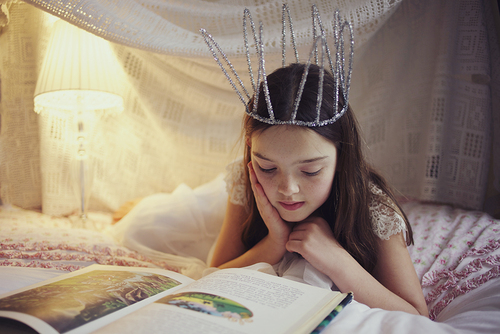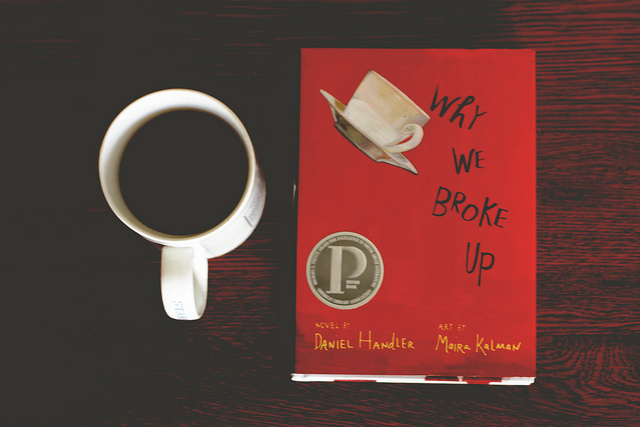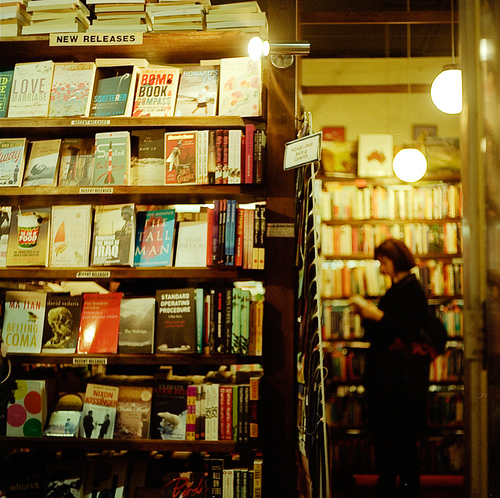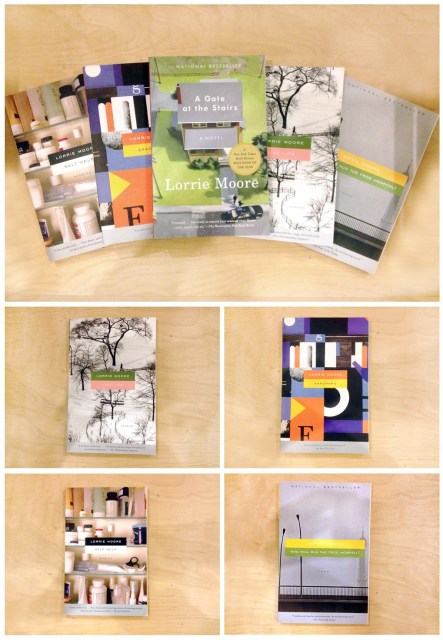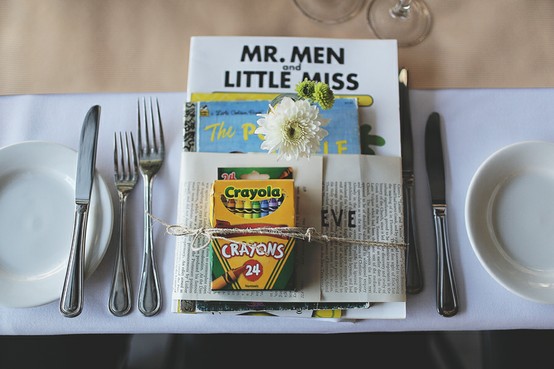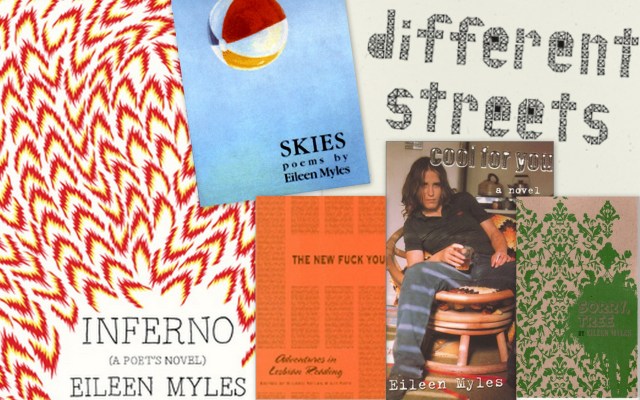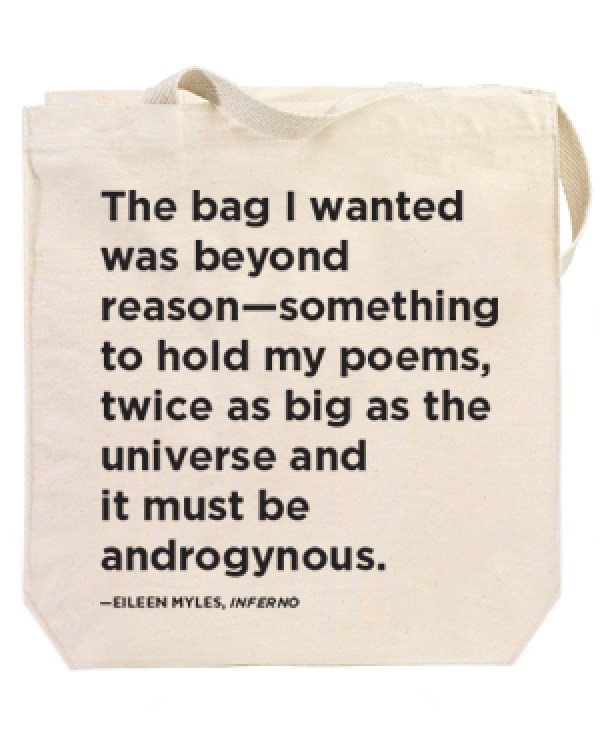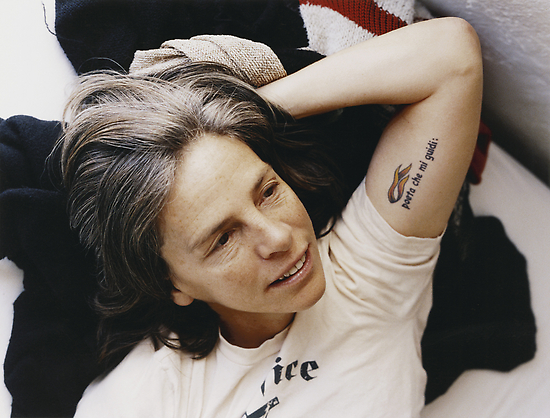55 Literary Books With Great Lesbian Sex Inside Them
For me, it’s never been the visuals so much as its been stories. Given the choice to go the rest of my life without porn or without surprisingly hot sex scenes in literary novels, I would sacrifice porn. I don’t mean erotica or romance novels — which have their own value, and I value them! — I mean how Eileen Myles has a chapter in Inferno called “My Revolution” and it’s just a whole meditation on the genitals of various women with whom she has engaged sexually, or that weekend-long threesome from Chronology of Water, or how I didn’t have any idea The First Bad Man or The Gin Closet were going to be books with lesbian sex in them and then all of a sudden it was happening. I mean how I’ve never forgotten the first time I read Dorothy Allison writing about “frog-fucking” or struggling to reconcile trauma with desire. Reading authors like Dorothy Allison or Mary Gaitskill or Kathy Acker who are VERY frank and explicit about sex in their work makes me feel like a tiger.
Anyhow, I took to twitter dot com to ask y’all about literary novels you’ve loved for the story but you know, also for the sex. Firstly, it’s worth noting that certain parts of Inferno and Chronology of Water, as aforementioned in this intro, came up in this thread almost immediately, thus affirming my life choices.
This post was originally published in February 2019 and has been updated for 2023.
Zami: A New Spelling of My Name, by Audre Lorde (1982)
 biomythography // lesbian
biomythography // lesbian
“Ginger moved in love like she laughed, openly and easily, and I moved with her, against her, within her, an ocean of brown warmth. Her sounds of delight and the deep shudders of relief that rolled through her body in the wake of my stroking fingers filled me with delight and a hunger for more of her. The sweetness of her body meeting and filling my mouth, my hands, wherever I touched, felt right and completing, as if I had been born to make love to this woman, and was remembering her body rather than learning it deeply for the first time.”
“Lesbian Appetites,” by Dorothy Allison (from Trash: Stories,”1988)
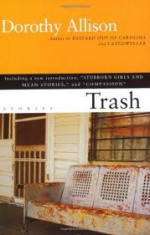 short stories // lesbian
short stories // lesbian
“We wrestled, eggplant breaking up between our navels. I got her shorts off, she got my jeans down. I dumped a whole plate of eggplant on her belly.
“You are just running salt, girl,” I teased, and pushed slices up between her legs, while I licked one of her nipples and pinched the other between a folded slice of eggplant. She was laughing, her belly bouncing under me.
“I’m gonna make you eat all this,” she yelled.
“Of course,” I pushed eggplant out of the way and slipped two fingers between her labia. She was slicker than peanut oil. “But first we got to get the poison out.”
Don Juan in the Village, by Jane DeLynn (1990)
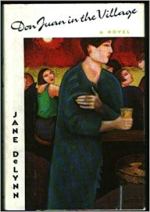 short stories // lesbian
short stories // lesbian
“With my nipple still in her mouth she pushed my jeans down so they encircled my ankles. I was sweating and messy. She was much older than me, almost clinical as she proceeded, which not only aroused me but made me like her better. Somehow things were more in balance than earlier in the evening. I wished she had brought a camera with her so we could have taken pictures of me masturbating to the sight of her naked body — and ever after I could torture myself over what she had done with them.”
Written on the Body, by Jeanette Winterson (1992)
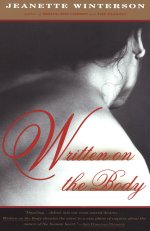 novel // queer
novel // queer
“Nail me to you. I will ride you like a nightmare. You are the winged horse Pegasus who would not be saddled. Strain under me. I want to see your muscle skein flex and stretch. Such innocent triangles holding hidden strength. Don’t rear at me with unfolding power. I fear you in our bed when I put out my hand to touch you and feel the twin razors turned towards me. You sleep with your back towards me so that I will know the full extent of you. It is sufficient.”
Two Or Three Things I Know For Sure, by Dorothy Allison (1995)
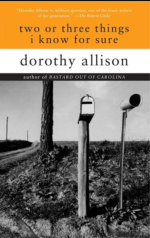 memoir // lesbian // i just wanted to include this quote here because it is one of my favorite things anybody has ever written!
memoir // lesbian // i just wanted to include this quote here because it is one of my favorite things anybody has ever written!
“I told her, Don’t touch me that way. Don’t come at me with that sour-cream smile. Come at me as if I were worth your life – the life we make together. Take me like a turtle whose shell must be cracked, whose heart is ice, who needs your heat. Love me like a warrior, sweat up to your earlobes and all your hope between your teeth. Love me so I know I am at least as important as anything you have ever wanted.”
Rat Bohemia, by Sarah Schulman (1995)
 novel // lesbian
novel // lesbian
Read our interview with Sarah Schulman
“I clenched my teeth. She bit my neck until I thought her teeth would break. Thank God. I like it when it hurts. Vaginal trauma is what I live for. Skeletal friction first and then my skin is the softest skin. When she comforted me, I loved the comfort. When she hurt me, I loved the pain. When she controlled me I loved the capitulation. When she serviced me I loved the intent. Coming out is not the end of insanity, you know. It’s only the beginning.”
“Buscando,” by Claudia Von Vacano (The New Fuck You: Adventures in Lesbian Reading, 1995)
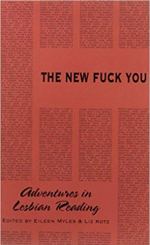 one story in an anthology of fiction, poetry and essays // lesbian
one story in an anthology of fiction, poetry and essays // lesbian
“I am masturbating. I am letting la Sangre crawl down the walls, making her way to my fingers. The fingers push her back to my ovaries, making red blood waves. I pull my fingers out and let the blood ooze gently onto my hand. I cup a handful and let it drip on my flesh. First on my round belly, just a drop enclosed within my navel, then on my nipples. Bruised breasts, going from purple green to tender brown. There is a powerful message in the red fluid that is my blood. It is trickling down through the orifice, the mouth-like opening at the tip of my tit. Instead of milk being sucked out from its deep roots, la Sangre is finding her way in. Buscando y arrancando. There are rough ropes tied in intricate and ornate knots. I am being held by these threads like my flesh is being sewn shut, the needle being held by a hand blurry in my vision. Raises. Roots sucking the water.”
Fall On Your Knees, by Ann-Marie MacDonald (1996)
 historical novel // lesbian
historical novel // lesbian
“I slid my hands under and up her smooth sides, I wanted to be slow to savor but we couldn’t, she gripped me and moved under me. I felt her nipples under my palms and I think I died. Rose gasped as though I’d stabbed her and I felt like a savage robbing a sacred tree, her thigh between my legs. I found her hand and led it to a place I know, I kissed it with the mouth that I keep hidden, then took her inside and sucked her like the greedy tide that can’t decide to swallow or disgorge. I lost track of everything. And even after I finally could stop, I knew that I would never be finished.”
In Another Place, Not Here, by Dionne Brand (1996)
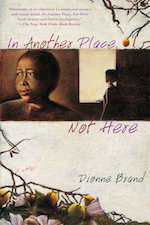 novel // lesbian
novel // lesbian
“…to appear normal she had slept with men at first. Slept with was hardly the phrase, certainly not fucked. Sex. Yes, she had sex with men until one day she couldn’t have it any more, just couldn’t and returned to the thought of her breasts in the curve of a woman’s, her legs wide to her tongue, her lips warm to her face, the fat of her belly, her hands searching her back, easing her muscles, watering her thighs. She’s thought of the brush and ease of the skin, the melt into the soft and swell of the body. How this is sometimes not done, not spoken, in her room, the beer at their lips, the moment with nothing to say between them. Then sometimes she would fall asleep in the curve of the breasts, in the crook and keen musk of thighs, the slip of the skin. She wants nothing more.”
Tipping the Velvet, by Sarah Waters (1998)
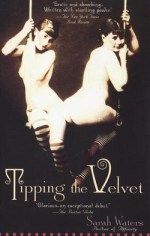
historical fiction // lesbian
“Soon her breaths became moans, then cries; soon my own voice joined hers, for the dildo that serviced her also pleasured me — her motions bring it with an even faster, ever harder pressure against just that part of me that cared for pressure best. I had one brief moment of self-consciousness, when I saw myself as from a distance, straddled by a stranger in an unknown house, buckled inside that monstrous instrument, panting with pleasure and sweating with lust. Then in another moment I could think nothing, only shudder; and the pleasure — mine and hers — found its aching, arching crisis, and was spent.
After a second she eased herself from my lap, then straddled my thigh and rocked gently there, occasionally jerking, and at last growing still. Her hair, which had come loose, was hot against my jaw.
At length she laughed, and moved again against my hip. “Oh, you exquisite little tart!” she said.”
My Mother: Demonology, by Kathy Acker (1993)
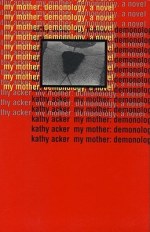 experimental fiction // queer
experimental fiction // queer
“After she came back, Isabelle and I arranged to meet alone in the church.
“I missed you.”
“I missed you.”
I dug her neck into my teeth. Then I nailed her hands against the floor. Her pincers tore at me. I followed everything inside me. From now on her legs would always be spread open. I stormed her openings as if she was beleaguered fortress.
“Tell me.”
“I love you.”
“Again.”
“I love you.”
“Again.”
“I love you.”
Another memory: Night after night when it was dark I crawled into I’s bed. We held hands and told each other our stories of childhood.
“The school,” she said, “was burning down.”
No. Our cunts.
I don’t remember. Don’t describe what can’t be remembered. What will never be seen. What’s between the legs, I and I. She was discovering the little organ that the cock imitates. My limitations are too painful. I transformed into the sex of a dog, red and unbearable to my own eyes.
It has come.
(For this reason women don’t need Christ.)
Our comings can’t end.”
Valencia, by Michelle Tea (2000)
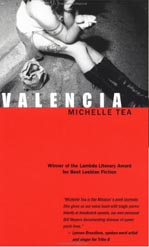 memoir // lesbian
memoir // lesbian
“I took the brat through the dark streets of the city I had owned first and we sucked from glass bottles, hands twisting the sacks around the necks into paper flowers. We fucked in bathrooms and alleys bold as boys, bent over porcelain sinks that creaked from the wall with the weight of her hand inside me. The rustle of clothes and rats, clink of belt buckles and feet on broken glass. When someone saw us by accident, I let them be embarrassed. Shame was like a dirty tampon pulled from my body and flung in the bucket when I was with Iris.”
Fingersmith, by Sarah Waters (2002)
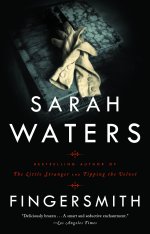 historical novel // lesbian
historical novel // lesbian
“So, I kissed her again. Then I touched her. I touched her face. I began at the meeting of our mouths — at the soft wet corners of our lips — then found her jaw, her cheek, her brow — I had touched her before, to wash and dress her; but never like this. So smooth she was! So warm! It was like I was calling the heat and shape of her out of the darkness — as if the darkness was turning solid and growing quick, under my hand.
She began to shake. I supposed she was still afraid. Then I began to shake, too. I forgot to think of Gentleman, after that. I thought only of her. When her face grew wet with tears, I kissed them away.
“You pearl,” I said. So white she was! “You pearl, you pearl, you pearl.”
Lee and Elaine, by Ann Rower (2002)
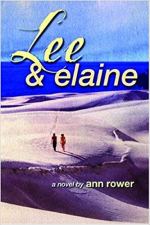 experimental novel // queer
experimental novel // queer
“I felt so good, tied to the bed, without choice, chosen, legs and arms spread; I hovered above myself, seeing my fantasy of the student’s experienced fingers opening the teacher’s clothes, unsnapping teacher, spreading her, sliding inside the material; over her breasts, around her shoulders, down to her navel over her belly and down into her bush, which was not as bushy, of course, as it had been when she was a student herself, much to her sorrow. I returned to my body and gazed up at the face on top of me, close, intent, the curly gray hair getting curlier from dampness. I started to thrash.”
The Salt Roads, by Nalo Hopkinson (2003)
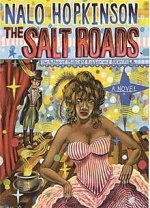 novel // queer
novel // queer
“I burrowed my head in closer and tunnelled my tongue into her gully hole. Lisette giggled, then sighed, my girl, and opened her knees wider. The salty liquor of her spread in my mouth. I lapped and snuffled, held her thighs tight as she wriggled and moaned. Pretty soon she was bucking on my face, calling out and cursing me sweet. All sweaty, she was, and she had her thighs clamped to my ears so that my hearing was muffled. My hair was caught beneath her. It pulled, but I cared nothing for that. I reached behind her and squeezed her bumcheeks, used them to pull her closer. She wailed and shoved herself at me, until to breathe at all I had to breathe in her juice. And she pitched and galloped like runaway horses, but I held her, held her down and sucked her button in, twirled my tongue around it. Then even her swears stopped, for she could manage words no longer, and only panted and moaned. The roar she gave at the end seemed to come from the pit of her, to bellow up through her sopping cunny.”
“Her Body, Mine, and His,” by Dorothy Allison (from Skin: Talking About Sex, Class and Literature, 2005)
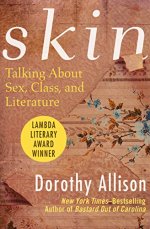 essays // lesbian // if my ex is reading this, i would like her to know that i think she still has my copy of this book and i would like it back!!
essays // lesbian // if my ex is reading this, i would like her to know that i think she still has my copy of this book and i would like it back!!
“Frog fucking. Her hands on my hips; my heels against my ass, legs spread wide; her face leaning into my neck; my hands gripping her forearms. Her teeth are gentle. Nothing else about her is. I push up on the balls of my feet, rock my ass onto my ankles, reaching up for every forward movement of her thighs between mine. Her nipples are hard, her face flushed, feet planted on the floor while I arch off the edge of the bed, a water mammal, frog creature with thighs snapping back to meet her every thrust.”
Girl Meets Boy: The Myth of Iphis, by Ali Smith (2007)
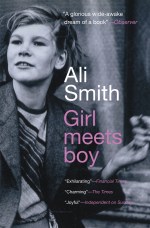
historical experimental fiction // queer
“Her beautiful head was down at my breast, she caught me between her teeth just once, she put the nip into nipple like the cub of a fox would, down we went, no wonder they call it an earth, it was loamy, it was good, it was what good meant, it was earthy, it was what earth meant, it was the underground of everything, the kind of soil that cleans things. Was that her tongue? Was that what they meant when they said flames had tongues? Was I melting? Would I melt? Was I gold? Was I magnesium?”
Santa Olivia, by Jacqueline Carey (2009)
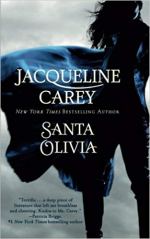 urban fantasy novel // queer
urban fantasy novel // queer
“Oh, fuck it,” Pilar whispered. She took Loup’s face in her hands and kissed her, hard and deep. The rainwater was cool, but her skin was warm beneath it; and there was no pulling away, only pushing closer. Closer and closer. She pressed Loup against the door, kissed her hungrily, her tongue agile and expert. Pilar’s breasts pressing against hers, nipples erect with cool rain and desire. One leg pressed between her thighs. Her hands slid down to Loup’s waist, under her tank top, craving skin. Loup wound her arms around Pilar’s neck, kissing her back.
It was exhilarating.
Better than fighting, better than anything.”
Inferno, a Poet’s Novel by Eileen Myles (2010)
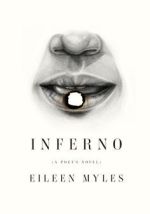 memoirish novel // lesbian
memoirish novel // lesbian
read our review of Inferno
“Waves of feeling rocked through my chest and cunt. It was too much to ask, to imagine. She was the lesbian. It was hers. Her bed. her room. Her beautiful sunshine going down on the awful medieval filth of me. A horrible dirty twenty seven year old. Too late. I was rotten with men. All that sex an hour ago now made me hopelessly wrong. To have the privilege of a girl. Her smells were all I could hope for. She would eat me?”
Chronology of Water: A Memoir, by Lidia Yuknavitch (2011)
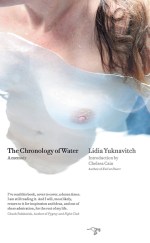 memoir // bisexual
memoir // bisexual
“Whoever was staying in the [rooms next to ours] must’ve gotten an earful. Hours of woman on woman on woman whose regular lives didn’t allow for such wild abandon. Sometimes Hannah’s fist up my cunt Claire’s mouth on mine or me sucking her epic tits. Sometimes Hannah on her stomach me up her ass with a strap on Claire behind me giving me a reach-around — a skill she intuited. Sometimes Claire on all fours me and Hannah filling every hole licking every mouth rubbing her clit making her scream making her entire corpus shiver her head rock back her woman wail let loose gone primal cum and shit stains and spit and tears. I came in Hannah’s mouth, her face between my legs like some goddess in a new myth.”
My Education: A Novel, by Susan Choi (2013)
 novel // bisexual
novel // bisexual
“She made me come so many times that afternoon that had I been somewhat older, I might have dropped dead. Had I been a doll, she might have twisted off each of my limbs, and sucked the knobs until they glistened, and drilled her tongue into each of the holes. Certainly had the windows been open, as would have made sense on that sunny June day, my thundering cries, in the end, would have summoned the neighbors; for Martha, in dismantling me, dredged a voice out of me I did not know I owned; the devastation of my pleasure surged outward and outward again, like an ocean-floor tremor, while that voice I had never imagined was bellowing harshly oh GOD oh GOD OHGODOHGODOHOGOD! — and it was then that Martha finally flung herself onto my shore, and through violent sobs kissed me…”
Women, by Chloe Caldwell (2014)
 memoir // bisexual
memoir // bisexual
“She unbuttons my shirt. Underneath I am wearing a lace tank top. What is this shirt, she says, This shirt is going to haunt me. We kiss and kiss and then she turns me around, fucking me from behind with her hand, pulling my underwear to the side. I keep my tank top on. I like fucking you while you still have some clothes on, she says. We laugh after I come. Let’s make you come again, because it’s fun, she says. I ask her if she came and she says, Did it feel like I came? I ask her if she wants to see the new lingerie I bought. She says yes. I leave the bed and walk to my dresser, opening the top drawer, stripping my clothes off and pulling the pink and lacey dress over my head. She lies on her back on the carpet and I lie on top of her.”
Dirty River: A Queer Femme of Color Dreaming Her Way Home, by Leah Lakshmi Piepzna-Samarasinha (2015)
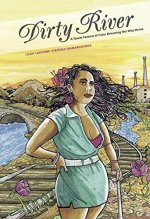 memoir // essays // queer
memoir // essays // queer
read our review of Dirty River
“You’re so open right now. I could almost fist you,” my lover says. I say “making love” with this one without irony. There are many moments when we make love and kiss, and it’s sacred, it’s hovering spirits inhabiting and flying over our bodies; it’s making love with the psychic incest-survivor crazy who is a grownup after a lot of therapy and medication who I fund, waded in a river and prayed for.
They have four fingers inside me. They have big hands. I am all the way open. The day before my period. New moon in Pisces, and I’ve been crying from the gut all week. All the way love. All the way open to you. It doesn’t hurt. It’s not hard. I am opening. I come a series of high and open. I will keep opening for you. I make this joyful choice.”
Life Is Wonderful, People are Terrific, by Meliza Bañales (2015)
 novel // queer
novel // queer
read our review of Life Is Wonderful, People are Terrific
“Having her in bed with me made me realize how alone I’d been. Her body was so soft and warm, she had a round belly and firm tits with dark nipples that I held in my mouth for a long time. She was quiet at first which only turned me on more, but when she whispered in my ear “Will you go inside me?” I almost lost all control. I took it gently, then gained momentum. She was beneath me and I kept watching her face the entire time, the light from a new half-moon shining on her face through my window in the dark. I could feel the moment of pressure inside her against my middle finger and that’s when she cried out, hot liquid all over me, my bed, underneath her. Me next to her, wrapped around each other, kissing for hours. I kept thinking about the Cherrie Moraga poem and all the ways I felt myself open right then with Gabby. It wasn’t the kinkiest or the craziest sex I’ve ever had but it was one of the most intimate and I found myself practically high off her and she let me have all of her.”
Under the Udala Trees, by Chinelo Okparanta (2016)
 novel // bisexual
novel // bisexual
“Slowly she made her way to my chest. We’d never gone farther than the chest. But now she gently removed my nightgown, and then removed hers. She cupped her hands around my breasts, took turns with them, fondling and stroking and caressing them with her tongue. I felt the soft tug of her teeth on the peaks of my chest. Euphoria washed over me.
She continued, leaving a trail of kisses on her way down to my belly. She traveled farther, beyond the belly, farther than we had ever gone. I moaned and surrendered myself to her. I did not until then know that a mouth could make me feel that way when placed in that part of the body where I had never imagined a mouth to belong.”
Paul Takes the Form Of a Mortal Girl, by Andrea Lowler (2017)
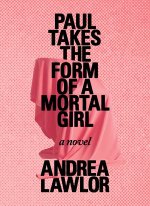 novel // lesbian // genderfluid
novel // lesbian // genderfluid
Note: The protagonist, Paul, is a shape-shifter, and the author uses he/him pronouns for Paul regardless of what shape he’s in. For this excerpt, Paul is in a woman’s body.
“They kissed more, with this dare in their heads, and then Paul couldn’t take doing nothing else, her hands all over him. He slid his hand down her workpants into the slidey packet of her, and felt some kind of jittery bursting in his own self, and she jangled out of her clothes to give his hand a better angle to get inside her and he cupped his fingers up inside her, mouth on her nipple, under her pushed-up shirt. His hands somehow knew what to do and he realized that he’d slid his entire hand inside her without asking. She squeezed his knuckles and he tried to tuck his thumb without hurting her, because of how many lectures on safe fisting, and how different could a vagina be? He wondered if she would break his hand with her throbbing and then he surrendered to the immediate need to suck on something and bent to her clit, where he felt exceedingly peaceful for a long time, sucking and slowly moving his fist, so slowly, until she began to come, or come again?, through which Paul just hung on, which seemed to be the right thing. Afterward she smiled at him and they kissed and Paul felt floppy and amped and disturbed in a way he though might be connected to not having come. Or had he? Things were very sloshy down there and had maybe changed states in some incomprehensible way. Diane was kissing him again, and again this dispelled the thinking and then somehow she had slid between his legs, pulled off his shorts, and was sucking on his girl parts through and then under his hot soaking panties, building to a violent universal bang. Then it was over, and he was just smelling crushed grass and sex and the starry night all over him.”
Abandon Me: A Memoir, by Melissa Febos (2017)
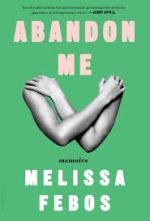 memoir // bisexual
memoir // bisexual
“The first time she asked me to come, she asked in Spanish, the Captain’s first language. It felt like a consummation. Not of love, per se, but a desire stored deep in our bodies. This, we said with our hands and teeth and tongues. This is as close as we can get to it. This is everything, and it is not enough. I understood what she had meant when she wrote that I had taken something from her. I wanted something from her that I could not name. My whole body was a mouth. My heart was a mouth that only she could fill, that she could never fill.”
“Real Woman Have Bodies” by Carmen Maria Machado (from “Her Body And Other Parties,” 2017)
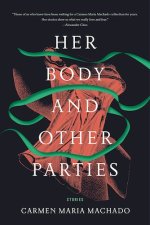 short stories // bisexual
short stories // bisexual
“You’re really beautiful,” she says into my skin. She grinds her pelvis hard against mine, and I moan, and at some point the cold charm of her necklace dips into my mouth and knocks against my teeth. I laugh, she laughs. She takes off the necklace and sets it down on the nightstand, the chain slithering like sand. When she sits up again, the ceiling fan frames her head like a glowing halo, like she’s a Madonna in a medieval painting. There is a mirror on the opposite side of the room, and I catch fragments of her reflection. “May I —” she starts, and I nod before she finishes. She puts her hand over my mouth and bites my neck and slips three fingers into me. I laugh-gasp against her palm.
I come fast and hard, like a bottle breaking against a brick wall. Like I’ve been waiting for permission.”
America is Not the Heart, by Elaine Castillo (2018)
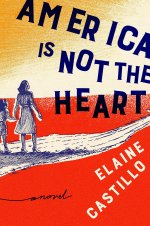 novel // bisexual
novel // bisexual
“The problem with having somewhat good sex with someone reasonably available—well, reasonably; immoderately and extravagantly available, more like—was that, once had, it was difficult not to want it all the time. It was difficult for Hero to remember that she’d spent months and months filling up her days with something that wasn’t fucking around with Rosalyn, that in fact she’d gone most of her life doing things that weren’t fucking around with Rosalyn, that she had an entire lifetime’s worth of evidence showing that it was possible to think about things that weren’t fucking around with Rosalyn—and yet. Hero found herself ignoring all the evidence in favor of spending her days thrumming, like a machine that had been left turned on and then forgotten about, leaking electricity, draining itself dry, until Rosalyn got within hand’s reach again.”
The Best Bad Things, by Katrina Carrasco (2018)
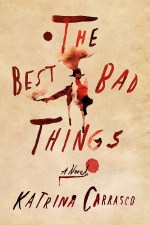 historical fiction // bisexual
historical fiction // bisexual
“Her hips are rocking into Alma’s touch. The pale ribbon whispers through each set of eyes. Nell unhooks the corset’s busks, and it falls open like a flower. She pulls off her chemise and is all bared to Alma, her skin pearly in the lamplight, silvery lines on the skin at her hips, on the skin under her navel, tracing toward the dark thatch of hair where Alma’s hand is still busy, still twisting. Alma walks her backward to the bed. Drops to her knees and replaces her thumb with her tongue. Nell moans. Hot musk in Alma’s nose, slickness on her tongue, oh, and it’s good, her mouth dripping spit, Nell’s fingers in her hair, holding her down. Her breaths come thick, fast, and god damn it, she can’t wait any longer. She kneels wider on the floor, the boards’ seams biting into her knees. Pulls her hand from the heat of Nell’s body and works it under the band of her small clothes. Fingers wet with Nell’s juices, Alma’s tongue pulsing in time with her touch, oh, yeah, it won’t take much, her body is wound tight as a watch spring.
“Let me see you,” Nell says, breath hitched. “Let me see your face.”
When Katie Met Cassidy, Camille Perri (2018)
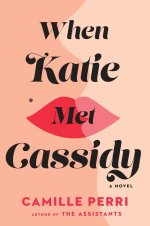 novel // lesbian
novel // lesbian
read our review of When Katie Met Cassidy
Katie ran her fingers across Cassidy’s taut stomach. “You know how you felt out there on the ranch?” she said. “Like you were out of your element?”
A trail of goosebumps followed the path of Katie’s fingertips upon Cassidy’s skin.
“That’s how I feel with you.” She traced her way down to Cassidy’s hipbones. “I don’t know how to touch you.” She glided her fingertips down the inside of Cassidy’s thigh. “But I want to.”
Cassidy kissed Katie’s neck, took her earlobe into her mouth. She whispered into Katie’s ear, “I’ll show you.”
Roller Girl, by Vanessa North (2018)
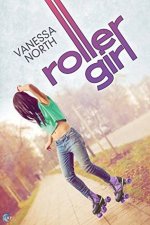 novel // lesbian // transgender
novel // lesbian // transgender
“How long has it been since I laughed with someone during sex? Have I ever? It feels good, shameless and free. She bites the side of my breast, her breath wet and hot there, then trailing slowly across to my nipple. My whole body tightens in anticipation as her lips close over my waiting flesh. I shiver, caught in the rush of heat. My limbs go lax as she draws on my nipple, again and again. One hand slides down to cup me through my pants, and instead of pushing it away, I ride her hand as another kind of pressure builds inside me.
“Yeah, rub off on me,” she whispers, “Can you come like that?”
I don’t know, but it would take an act of Congress to keep me from trying.”
Animals Eat Each Other, Elle Nash (2018)
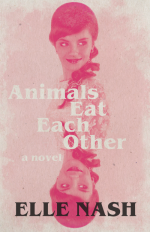 novel // bisexual
novel // bisexual
“The way I ate her was like a meal, in little parts. Jenny gave small pieces of herself away each time my tongue pressed into her. A little less of her seemed to come back with me. The places where we became one thing together like this, our open membranes raw and bleeding. The cave of her colliding into my mouth, the place where words form. The way our darks connected. I didn’t know what to think about how this felt other than we were here, alive and breathing and fucking, and maybe this is how it was supposed to be.”
Mostly Dead Things, by Kristen Arnett (2019)
novel // lesbian
read our review of Mostly Dead Things
“I kissed her to make myself forget. Forget all about it. Think only about the body how it would open for me, the thing that I needed.
She lay back on my unmade covers, still rumpled from the night before. Had me set the carapace of the cicada on the plane of her stomach, in the fallen divot between her ribs. We watched each other through the open hole of its body. I could hear the live ones screaming again outside in the trees, high and shrill. When my mouth touched the opening to her body, her chest rose abruptly. The cicada rolled forward, ready for flight.”
Long Live the Tribe of Fatherless Girls, by T Kira Madden (2019)
novel // lesbian
read our review of “Long Live the Tribe of Fatherless Girls”

“I pull her pants down to her knees and push my face into her and taste what I want to taste. I fuck her with my hand. Relax, she says. I’m the one who tops here.
Jane tries to flip me over, but I don’t want her to touch me. As if by reaching inside me she will find the very pith of my fraudulence. I have a UTI, I lie, crushing my hips into her leg.
Sometimes I jerk off thinking of you, she says.
I come when she says this.”
A Song For You, by Robyn Crawford (2019)
memoir // lesbian

“Whitney and I held hands and got close on the dance floor, but once we started kissing, we left. We made it to the car but couldn’t wait long enough to get back to the hotel. I parked the rental car alongside the water, and before long a cop knocked on the window. We were in there naked, but the windows were fogged up so he couldn’t see much and just urged us to move along. Whitney was uncomfortable with her body, but I thought she was beautiful. I used to tell her, ‘God must have put you together piece by piece.'”
A World Between, by Emily Hashimoto (2020)
 novel // lesbian
novel // lesbian
read our review of A World Between
“Eleanor felt twenty again, with a craving like there was nothing else in her life, and pressed Leena into the air mattress as it weaved and waved with the pressure of their bodies. With Leena naked underneath her, she licked and kissed paths all over her skin, relearning the geography that once kept her up at night, gently biting the birthmark on her inner thigh, moving right on past the engagement ring as if it wasn’t even there.”
Detransition, Baby, by Torrey Peters (2021)
novel // bisexual // transgender
read our review of Detransition, Baby

“How long had she been sobbing? She didn’t want to sob, she wanted to kiss the pretty dick resting on the pad of her tongue. For the last month, she had been obsessed with Reese; all she wanted to do was get closer and closer to her. It was to the point that the phrase ‘I want to eat you up’ took on shades of the literal — digestive incorporation being the only act that Amy could imagine getting her closer to Reese than sex. Just an hour before, Amy had watched Reese brush her teeth, her long brown hair hanging loose, and her arm pistoning back and forth so hard as she brushed that her tits waggled side to side under her slinky nightgown. Amy decided it was the sexiest thing she’d ever seen, topping each of the fifty other Reese actions she’d decided one after another that day was the sexiest vision ever.”
With Teeth, by Kristen Arnett (2021)

novel // lesbian
read our interview with Kristen Arnett
“Sammie knew people always described their orgasms as cresting waves. Invoked the beauty of a starburt, or fireworks all in a row: bang, bang, bang. But for her, coming felt more like finally sitting down for a good meal after starving for weeks. The movement of it—spasms like a jaw clenching and unclenching. Like her pussy wanted to swallow everything and ask for seconds.
She fisted a hand in Myra’s hair and rode out that first big one. If Myra kept swirling her tongue like that, she might come again. Then it would be like having leftovers. Just thinking about that way led to her next orgasm. She yelled a word that almost sounded like fuck, and tightened her grip until she knew there’d be strands of Myra’s hair twined between her fingers when she let go. She almost came a third time, but she was spent, it was done, and when she finally let go and Myra sat up, smiling, she saw blood ringing the other woman’s mouth.”
Skye Falling, by Mia McKenzie (2021)

novel // bisexual
“Back in my room, we lie on the bed and kiss. And kiss. And kiss. I cannot get enough of Faye’s mouth, of the taste and smell of it, of the way her lips feel against mine. I could lie here with her tongue in my mouth for the rest of my life. But after a few minutes of kissing, she climbs on top of me. She sits up, so she’s straddling me, then she pulls me into a sitting position, too. She tugs at my shirt and, as I raise mu arms, she pulls it over my head. This is when I realize I’m still wearing my emergency bra and begin to scream internally.”
You Exist Too Much, by Zaina Arafat (2021)
 novel // bisexual
novel // bisexual
read our interview with Zaina Arafat
“After climbing into bed the night before, I’d woken her up the way I knew she liked, pressing my nose against her neck and breathing deeply until the vibration roused her. I then switched up our usual roles, pulling myself on top of her while at the same time scooting her beneath me.”
Yerba Buena, by Nina Lacour (2022)

novel // lesbian
read our review of Yerba Buena
“Sara took a woman home that night, something she rarely did, though the offers tumbled forth with every night she worked the bar. She was practiced in the art of being just friendly enough, of the gentle rejection, of the absolute no when it was required. But that fantasy—cupping Emilie’s cheek and drawing her closer—wouldn’t let Sara rest. So when a woman stayed late, past the time her friends left, past everyone else, Sara gave in. They had sex on the sofa in Sara’s small living room. The woman came quickly, and Sara felt a burst of tenderness for her—Christa or maybe Christine? It had been loud in the bar when she’d told her—but soon, emptiness came rushing in. That inevitable feeling. The reason no relationship lasted very long.”
Our Wives Under the Sea, by Julia Armfield (2022)

novel // lesbian
read our review of Our Wives Under the Sea
“Sex with Leah was a key and a lock, an opening up of something I had assumed impassable, like a door warped shut by the heat. Joy in the fact of pleasure, in the fact of my own relief. When we fucked, I felt myself distinct from my previous versions: the frenzied me, the panicked me, the me who had imagined herself poisoned by something she had never even done.”
Body Grammar, by Jules Ohman (2022)

novel // queer
read our review of Body Grammar
“It felt heady and strange to be kissing someone she didn’t know well but was extremely attracted to. Her body hummed as Thayer took off her shirt and peeled down her jeans, then lay there, looking up at Lou. Lou asked what she wanted, and Thayer told her. Lou didn’t know what to do, but she knew how to follow directions. She could put her mouth there and there and there, and she could move her tongue like that and that, and she could do everything that was asked of her, especially if she was asked like that, and it turned out she could it all well, like really well. Thayer smelled and tasted delicious and Lou was so hungry, and as soon as it was over, she wanted to do it again.”
We Had to Remove This Post, by Hanna Bervoets (2022)
 novella // lesbian
novella // lesbian
“Later, during the spell when Sigrid and I didn’t see each other for a while, I would nonetheless evoke that kiss when I was masturbating, and over time my memory of the fantasy has become clearer than my memory of the night itself. In that fantasy Sigrid won’t stop staring at me. She uses every excuse to touch me, deliberately pressing into me as she leans over to grab another beer off the tray. In the fantasy, I reach out and put a hand on her thigh; she, in turn, shakes her head and flushes red, and then I get up to go to the restroom and she follows me. She tugs at my shoulder to turn me toward her and I push her up against the wall. We’re blocking the hallway to the restrooms, which is too narrow as it is—by the time our lips touch I’ve usually already come, and if not, I switch to a different memory, an image from a few weeks later: We’re in my bed and Sigrid is straddling me, “Deeper, deeper,” she cries, her face contorted with pleasure and yet vaguely mournful, and the memory of that grimace—ugly and hot at the same time—tends to get me there right away.”
Helen House, by Kayla Kumari Upadhyaya (2022)
 novella // lesbian
novella // lesbian
read our review of Helen House
“When she found out about the promotion, we’d gone out for Korean BBQ. Later in bed, I could still smell the smoke in her hair, and it made me hungry for her. I mean, sure, I was always hungry for her. But that smoky smell was like a spell, and I asked her to put on the harness I usually wore, watched her fumble with its buckles and straps without offering any assistance, my hunger deepening when she whispered, Like this?“
All This Could Be Different, by Sarah Thankam Mathews (2022)
 novel // lesbian
novel // lesbian
read our review of All This Could Be Different
“I touched the Kia Soul’s gear stick. Get naked, I said. Then put your mouth on this.
A look of uncertainty flashed across her face. Still, she complied. Contorting her torso to stay perched on me. Her generous lower lip and its slender tremulous companion, pink shot through with brown. Her mouth, parting.
Pleasure this, I said, taking in the bemused look in her eyes, feeling the vague gathering mists of foolishness—and of course, real wild desire is braided tightly with foolishness, with all that is awkward and stilted. I had to work against this. To safeguard the moment, which still felt savable, felt swollen with blood and heat.
Pleasure it, I said, as if it were my cock.“
Pretty Baby, by Chris Belcher (2022)
memoir // lesbian

“Sam and I spent two weeks sweaty fucking for hours a day in her mom’s two-bedroom, one-bathroom trailer without air-conditioning. We barely left except to walk to McDonald’s or Subway, where I would order double and eat until I felt sick. The sex made me ravenous, but I hated leaving Sam’s bedroom, tiptoeing out past her mom, into the kitchen. She looked up at me from her recliner like she could smell her daughter on me, and surely, she could.”
Sirens & Muses, by Antonia Angress (2022)
 novel // bisexual
novel // bisexual
“At first they only hooked up in Louisa’s studio, late at night when the building was empty and silent, but after a few days they began having sex in their room, as well. It was surreal, Louisa thought sometimes: there were her posters on the wall, and there was her green plastic shower caddy, and there was her towel on its hook, and here was Karina’s pale pink nipple in her mouth, and here were Karina’s fingers moving inside her, and here was Karina’s tongue on her neck, and here—”
We Do What We Do in the Dark, by Michelle Hart (2023)
 novel // lesbian
novel // lesbian
read our review of We Do What We Do in the Dark
“Mallory turned toward the woman and kissed the woman’s shoulder, her neck, her lips. They kissed for while before the woman went to lie back on the bed, reaching her hand into her underwear to rub herself, soft and slow. Her eyes were closed. Mallory, still seated beside the woman but looking down at her, understood that the woman wanted to be watched doing this too, so that was what Mallory did: watched.
Almost as a reflex, Mallory, who’d taught herself to masturbate by watching other women do it in porn, began to mirror the woman’s movements on herself. She felt her own wetness and fell back next to the woman. The two of them moved like this, alone and together. Their breaths became heavier and heavier until the woman whispered, ‘Do you want to touch me?’ Mallory said yes, and the woman took Mallory’s hand in hers, bringing it between her legs. The woman, using Mallory’s hand to rub herself, opened her legs wider, and Mallory sat up to kneel between them. A low moan trembled in the woman’s throat. The woman removed her own hand and Mallory continued. ‘Yes,’ the woman said. ‘Like that.’ It was as if she was teaching Mallory to draw.”
Dykette, by Jenny Fran Davis (2023)
 novel // lesbian
novel // lesbian
“Sasha fell forward, as though by accident, collapsing into Jules. Pressed into the shoulder of Jules’s royal purple hoodie, she took a deep drag and closed her eyes. It was a sad smell, a smell of the past, a past that isn’t quite gone. Jules arranged her arms around Sasha and pulled her in. The pressure of their bodies together made Sasha so wet that she wondered if she was somehow already coming. They stayed like that for a few minutes, and then she wedged her right knee into Jules’s crotch, gently, again like an accident. Jules’s big body gave in almost immediately, her groin warmly accepting Sasha’s knee, sucking her knee into its micro-climate, and Sasha felt Jules’s wetness through Jules’s jeans and through her own black tights.”
Big Swiss, by Jen Beagin (2023)
 novel // queer
novel // queer
read our review of Big Swiss
“Her pussy looked like advanced oragami. A crisp pink lotus flower folded by a master. Greta briefly rearranged it with her mouth. The flower transformed into an acorn. Then a unicorn. Then back again. Greta dragged her tongue over it diagonally three dozen times. Now it resembled two dragonflies languidly mating on a lily pad.”
The Fake, by Zoe Whittall (2023)
 novel // lesbian
novel // lesbian
read our review of The Fake
“Shelby remembers when she and Kate were like that, when even if they were only driving an hour out of town they’d have to stop and have sex in the car on some side road, the bruises on her shins she’d have later that she liked to look at.”
Your Driver Is Waiting, by Priya Guns (2023)
 novel // lesbian
novel // lesbian
read our review of Your Driver Is Waiting
“‘Wait, wait. There’s no one here,’ she said between gasps, still grinding on my face. She opened the door and got out, pulling at me to follow her. She wasn’t afraid of showing me how much she wanted me. She walked around to the front of my car, and bent herself over the hood, before reaching down to touch her pussy. Fuck. Of course I was falling for her. She leaned against the car, my car, with come-get-me eyes.
‘Is this okay? Can I do this?’ asked Jo.
I leaned towards her, wrapping my leg around her, bringing her closer with my arm, then I kissed her neck. We were naked and maybe someone was watching but I didn’t think about it. Our bodies were close, and we rocked, finding each other’s rhythm. She bit my neck harder and scratched at my back, but I kept going until she was limp and shuddering in my arms.”
Homebodies, by Tembe Denton-Hurst (2023)
 novel // lesbian
novel // lesbian
“‘Okay, I’m sorry,’ Lex whispered against her flesh in a voice deeper than normal and Mickey felt the hum of desire rising in her skin. They loved to make up by fucking, some of their best, most spontaneous sex happened that way. The kind of sex they had when they first fell in love, and it reminded her that she could still feel that way, even after all these years.
‘I need a better apology than that.’
‘How do you want me to show you?’
Mickey hopped up on the countertop and opened her legs.”
Read a F*cking Book: You Simply Must Get Your Hands on “I Must Be Living Twice”
When I got my review copy of I Must Be Living Twice, the new anthology of Eileen Myles‘ poetry also featuring some previously unpublished work, I figured I’d just read the first six poems — the new ones, that is — and then write something for you right here on this website about it. But that wasn’t how it went. Instead, I devoured the entire book, only to figure out by the end that we are all living twice, and maybe even three or four times, and that each time it sounds like a different set of poems.
At the end of Living Twice, an essay titled “Twice” from a lecture in New York by the poet in 2014 spells out the collection’s title. Within it is a tale of two poems — one now published in Living Twice, one originally from Not Me — that live almost twenty years apart but echo each other. (Both are, broadly, “breakup poems” that capture a feeling of great loss, and encapsulate moments in which the poet “vanished.”) “Is it the same poem?” she asks. “It’s the same life.”
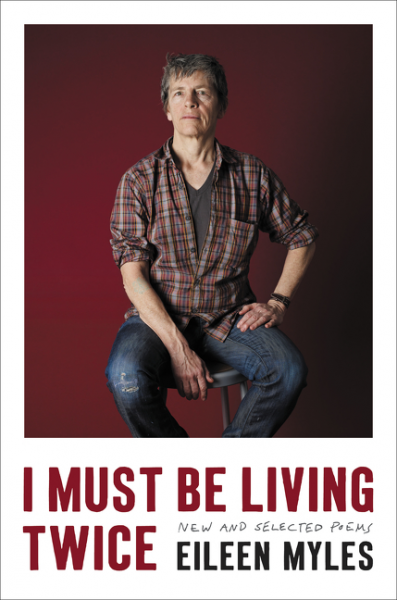 And so it goes with the collection, which spans poetry from 1975 to 2014, pulling from ten books of poems and two collections of new writing to paint a picture of that life, and a prolific and powerful career. Myles’ poems, which have always shed a spectacular light on the everyday in the poet’s world and, thus, in our own, have always been powerful enough to stand alone. But in each book — and now, in this one — there lies a story about where Eileen Myles is.
And so it goes with the collection, which spans poetry from 1975 to 2014, pulling from ten books of poems and two collections of new writing to paint a picture of that life, and a prolific and powerful career. Myles’ poems, which have always shed a spectacular light on the everyday in the poet’s world and, thus, in our own, have always been powerful enough to stand alone. But in each book — and now, in this one — there lies a story about where Eileen Myles is.
Every Eileen Myles book, every Eileen Myles poem, is our informal check-in with the poet herself. Is the dog inside? Who did you think of this afternoon? How is the weather? And on and on and on. All those tiny poems and big books, all those hundreds of tiny parts of a life. And now, we have a highlight reel — one that, when it stands alone, allows us to read those tiny poems and get a small sense of those big books and watch her grow each time she goes through something, whether it’s the first or second or third time she’s survived it.
I knew there would be something that connected the poems, and there was: The voice. Eileen Myles’ exquisite language. Her run-on thoughts and intersecting emotions and perfectly fragmented sentences. Her punctuation, or lack thereof. Her sex, her breakups, her coffee pots, her early mornings, her heartache, her bliss, her losses, her triumphs, her ability to look at all the things she is told to herald and spit on them. Her spirit is the single thread that holds her entire life together. It’s the binding on the book.
Within each collection, too, there are through lines. There are the the mentions of flowers in Sappho’s Boat, clouds and the wide open ceiling of the world in Skies, light in School of Fish, all these patterns that seem to melt into each other when there’s fewer words between each repetition and nothing but a page between each book. And once we recognize how all of those themes come together, what all of those things recognize, each of those books and all of the poems in this one become infinitely more layered and important. It’s like only when we stack these words next to each other, only when we read this story from cover to cover, do we realize that all along Eileen has been giving us even more than we realized. Suddenly, the images are even more vivid. The memories are even more connected. And the voice is even more powerful.
With I Must Be Living Twice, Eileen Myles has, at long-last, finally been recognized for all of those things. The collection does more than just exhibit some of her best work; it honors it. It’s a spell bounding, awe-inspiring chunk of a life, and of a career. Samples include “fan favorites” — “Peanut Butter,” “On the Death of Robert Lowell,” and “I always put my pussy…,” which was featured in season two of Transparent — as well as pieces you imagine Myles chose herself, perhaps because she was most proud of them. Many of the books culled for the anthology are books I’ve never read, despite being an avid collector of anything with Myles’ name on it. But sprinkled between poems I remembered from Sorry, Tree or Snowflake / Different Streets or, of course, Skies, were the poems that had slipped away from my memory, and seeing them there promoted me to re-examine them and wonder what meaning they must have had in this great poet’s world, in her career, in her life.
I always feel when I am reading an Eileen Myles poem that I am getting to know her better. And although Living Twice would of course make a great starting point for those who haven’t yet pried into Eileen Myles’ world, it’s also an enthralling and deeper look into her story for those of us who have been attempting to follow it all along.
Read a F*cking Book: Eileen Myles’ “Chelsea Girls” is Back, Better Than Ever
“I am a significant person, maybe a saint, or larger than life… I had thought I lived in a world of darkness and confusion and I was the single, glowing and true thing.”
I own a first edition of Chelsea Girls due to a series of very fortunate events, although I didn’t get to read it until twenty years after it was published — a few days before January 1, 2014, on a plane ride to Seattle.
It was a six-hour flight, which turned out to be just enough time for me to consume the entire book — taking breaks only for free coffee and to look out the window longingly — and then write two letters afterward: one to myself, because 2013 was ending and it had been a beautiful mess; and one to Eileen Myles.
“Thank you again for my copy of the book,” I wrote, signing off, “and thank you for writing it.”
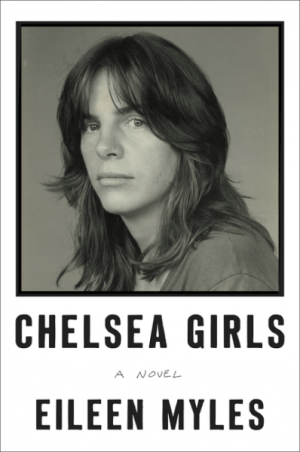 In addition to releasing a collection of classic and new poetry that I urge us all to give to everyone we know as a gift in the new year and this holiday season, Eileen Myles re-released Chelsea Girls this year. The autobiographical novel follows Myles through her childhood trauma and confusion, her adolescent awkwardness, and her ultimately triumphant but often tumultuous attempt to live her own version of a lesbian poet’s life in New York in the seventies (whatever that means) — but not in that order. The book switches off between shorter memories and tiny moments and full-bore stream-of-consciousness storytelling, all of which is alive with emotion and rich imagery and the thrill of being in on some kind of secret.
In addition to releasing a collection of classic and new poetry that I urge us all to give to everyone we know as a gift in the new year and this holiday season, Eileen Myles re-released Chelsea Girls this year. The autobiographical novel follows Myles through her childhood trauma and confusion, her adolescent awkwardness, and her ultimately triumphant but often tumultuous attempt to live her own version of a lesbian poet’s life in New York in the seventies (whatever that means) — but not in that order. The book switches off between shorter memories and tiny moments and full-bore stream-of-consciousness storytelling, all of which is alive with emotion and rich imagery and the thrill of being in on some kind of secret.
To say you “can’t put this book down” is more than just a cliché; in this case, it’s the truth. Every tiny story, every little bit of dialogue or description of her apartment or story about a woman she loved or didn’t love all that much after all, feels like they fit into one another seamlessly, despite the fact that they’re sometimes years apart. I mean, I could put it down. But then I might lose something, like how I felt ten pages before, and also despite the many periods and paragraphs and headings in this book it’s hard to tell where things truly begin and end, anyway. Reading it only makes the need to read it more urgent. It’s the kind of book that takes hold of you. Chelsea Girls is like sitting in someone else’s heart and mind as they go back through an entire lifetime of becoming who they are in that moment, and those are the kinds of moments you can’t just walk into and out of at random. They’re moments you have to go through, all at once, until they make sense at the end. Sure, each part of this book will make sense. You could take one story on its own or just one paragraph and probably you’d see something clearly, or find something to hold in your heart. But all this stuff together, that’s the masterpiece.
And I mean, it’s an Eileen Myles book. It’s something you immerse yourself in because just being that close to her life makes you feel a little bit more like the badass rockstar she’s always proven herself to be, the self-assured and courageous spirit who is as dedicated to telling the truth about her life as she is to living it however the fuck she wants. She offers us every last detail in her vivid recounting of her sordid past, sparing nothing gruesome or unfortunate or minor for our benefit. This book is the whole truth and nothing but the truth, so help us all.
Chelsea Girls is about the people you thought you were, drinking too much, doing what you have to even when it isn’t easy, forgetting what you’re looking for, losses that change you, feeling angry and feeling vulnerable, falling for the wrong people, fucking the wrong people — the sticky parts of life where the going gets tough and once you’re past it you realize it was beautiful, or at the very least it mattered, and you survived. It’s not always about the lessons we learn so much as the people we become when we forge on, when we survive, when we keep going, and what we learn about ourselves in the moments where we don’t know ourselves that well, or don’t realize how well we do. And for some of us — queer women who grew up in those wholesome parts of the country that are dangerous for our hearts, queer women who grew up in the church and are now on the search for our own higher power, queer women who refuse to stop seeking out our own freedom and carving out our own lives — it will remind us that our path, our confusions, our challenges, aren’t unprecedented.
This isn’t a coming-of-age story about being one person and then becoming someone else. It’s a wild ride through heaven and hell, from Boston to New York, through bar fights and blue pills, that reminds us all that we’re just as much the people we were in the bad times as the good, that we’re our ugly and our beautiful, that we’re both dark and light, and that those things never change. Even when we’re grown up. Even when the story ends.
Twenty years after it was published, Chelsea Girls is coming back to occupy a strange place in a world where memoirs have “happy endings” and stories fit into neat narrative structures. Twenty years later, Chelsea Girls is still an important piece of proof that in every messy, beautiful, embarrassing, fleeting, exhausting, and exhilarating moment alike there is something to learn and something to use to shape yourself.
Pop Culture Fix: Jill Soloway and Eileen Myles Are Officially Gal Pals
Welcome to the Pop Culture Fix, your weekly look at all the important pop culture stories you need to know about.
2015: The Year of Gal Pals
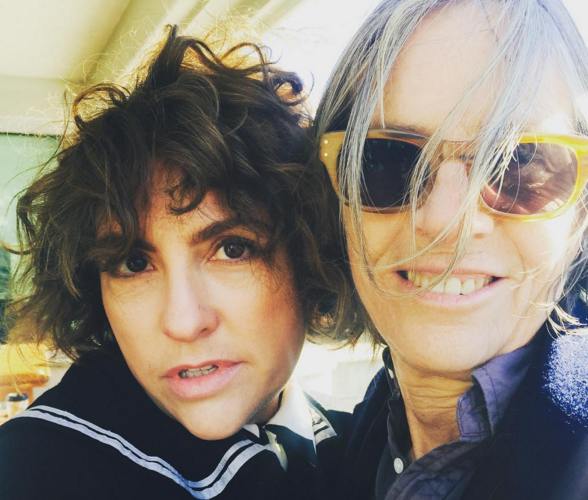
Riese has this working theory that we’re quickly approaching a day when all women will date other women, and that’s just the way the world will be, and deal with it, etc. 2015 seemed determined to back up her hypothesis; nary a fortnight passed without an always-assumed-straight celebrity casually making it known that she was now braiding another woman’s hair in an official Gal Pal capacity. As the year winds down, Transparent creator Jill Soloway continues the trend. In a profile in the New Yorker, Soloway revealed that she is “in the tight grip of new love” with Eileen Myles. They’re “touching each other’s backs and legs ceaselessly.”
Remember how Kayla told you that in the new season of Transparent, Cherry Jones plays Ali’s new Eileen Myles-esque graduate poet/professor? Yeah, well, when Soloway was researching the role, she got a Big Lesbian Crush on Eileen.
“So I go on sort of a deep dive of who Eileen is, watching videos of her,” Soloway told me. She felt the spiky blossoming of a crush. “I kind of get a feeling of, like, Oh, this is gonna be bad.”
And then they met in real life and had an instant connection and now they’re together, and that’s that. Turns out it wasn’t bad at all! The New Yorker profile is fascinating in the way all New Yorker profiles are fascinating, in large part because sentences like this exist: “Myles was wearing jeans and a button-down shirt, her hair silver and shaggy, her face set in a more lined version of the intense stare that Robert Mapplethorpe captured when he photographed her in 1980.” The profile is not without its bizarre, offensive, eyebrow-raising quotes about gender and identity, though, as all things related to Transparent seem — at least in part — to be.
Good Movies & Teevee Are Queer Movies & Teevee
The Screen Actors Guild Award nominations were announced this morning, and lordy, the SAGs are gonna be a queer old time next year.
Cate Blanchett and Rooney Mara are both up for acting awards for Carol.*
Queen Latifah snagged a nod for Bessie.
Christina Ricci, too, for her portrayal of an extra-queer Lizzie Borden.
Viola Davis seems like a lock for Best Female Actor in a Drama Series, for her portrayal bisexual Slytherin badass Annalise Keating on How to Get Away With Murder.
Same for Uzo Aduba for playing Suzanne Warren in Orange Is the New Black, which is also up for Outstanding Performance by an Ensemble in a Comedy Series.
And Transparent too.
* When is Carol coming to you? Here is that information.
UPDATE: Carol was also nominated for five Golden Globes, more than any other TV or movie. Lily Tomlin got two nods, for both Grandma and Grace and Frankie. Transparent and OITNB were both nominated for Best Drama, and Uzo and Viola were both nominated for Best Actress.
+ Queen Latifah will headline a new Lee Daniels drama on Fox about an all-female singing group from Atlanta!
Asked about his inspiration for the show, Daniels said, “It’s based on LaBelle, it’s based on the Supremes, it’s based on TLC, it’s based on Destiny’s Child. Same sort of inspirations, same sort of template when we created Empire … The new pilot has the possibility for a crossover with Empire, but there are no immediate plans yet.
Queer Women Out and About
+ You know who doesn’t give a flip if you like her, or the characters she plays? Lily Motherfucking Tomlin, that’s who. She and Amy Schuemer chatted about it for Variety.
+ Every queer women’s favorite imaginary girlfriend, Samira Wiley, will voice Michonne in Telltale Games’ new The Walking Dead: Michonne. The trailer, which premiered at the Game Awards last Friday, is chilling and also awesome. (Obviously I will never play this due to the blood, but you should play it and tell me what you think.)
+ Megan Rapinoe tore her ACL at USWNT practice on Friday, and now Hawaii’s Attorney General is stepping in to see if Aloha Stadium defaulted on its agreement to provide the women’s team with a “first class field.” After Rapinoe’s injury, the team wrote an open letter on The Players Tribune demanding access to facilities as good as those provided for the men’s national team, who never play on artificial turf. Abby Wambach took up this fight last year, and it seems like the USWNT is going to see it through. The New York Times published a lengthy look at how this fight has progressed and what it will mean for Rapinoe’s future.
Top 10 Queer and Feminist Books of 2015
2015 has been really awesome for giving us all a ton of new queer and/or feminist things to read! Here are some of the best.
The Top 10 Queer and Feminist Books of 2015
10. The Feminist Utopia Project: Fifty-Seven Visions of a Wildly Better Future, edited by Alexandra Brodsky and Rachel Kauder Nalebuff
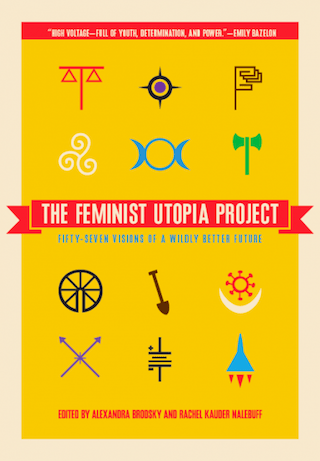
This collection of essays, interviews, stories, poems and visual art from contributors like Janet Mock, Mia McKenzie, Sheila Heti, Melissa Gira Grant, Yumi Sakugawa and others aims to envision not just a dreamy future but a better one. In her review at Autostraddle, Maddie writes:
“Instead of laying out a definitive blueprint or roadmap or set of ideals, Brodsky and Nalebuff invite the reader to join them and their diverse team of contributors in a creative and collective thought experiment to imagine what the world could be. This book is not a manual to create The Feminist Utopia; it is a process that you are invited to share in.”
9. I Must Be Living Twice: New and Selected Poems 1975–2014, by Eileen Myles
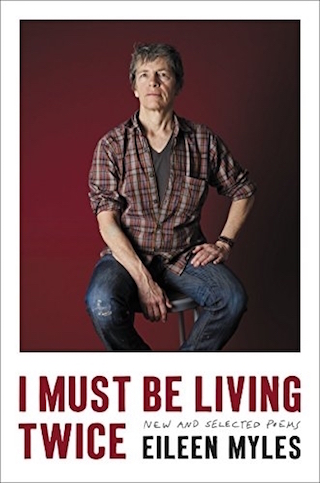
This sizeable new collection, along with a reissue of Chelsea Girls, has arguably (finally) brought Eileen Myles to the forefront of the collective literary consciousness and “nothing less than the foremost lesbian poet-hero of our time.” At the Poetry Society of America, Maggie Nelson writes:
“I’ve always been fascinated, both as a feminist and a human being, in the question of where culture begins and individual humans end, especially as (human) culture is made of human beings — human beings who live in bodies, the bodies of human animals, human animals capable of making speech. Eileen has spent the past four decades plumbing these questions in poems, stories, novels, art criticism, manifestos, public performances, mentoring, journalism, teaching, and more, with more experiment, hilarity, provocation, electricity, and doggedness than any writer I know of.”
8. How to Grow Up: A Memoir, by Michelle Tea
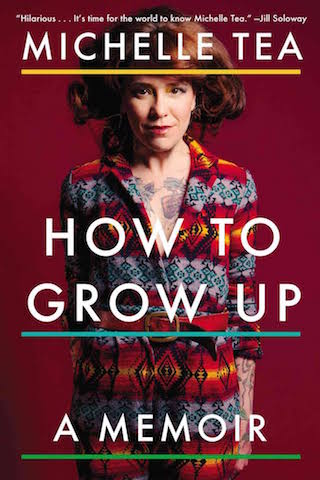
Michelle Tea, author of Valencia and other rad things, discusses her evolution in this essay collection slash memoir. At the Rumpus, Antonia Crane writes:
“How to Grow Up is Tea’s most commercial memoir to date, because it’s a refined and polished narrative that begins with Tea in her seedy digs in the Mission as a struggling writer and ends with our fierce heroine blossoming into a woman with a successful writing career and a baby. However, How to Grow Up still contains all of Michelle Tea’s signature lust for life as she trots towards her own colorful version of adulthood, motherhood, and recovery, reminding us that there’s hope after all—even for spirited pirates who have gotten lost on the path towards maturity.”
7. Asking For It: The Alarming Rise Of Rape Culture — And What We Can Do About It, by Kate Harding
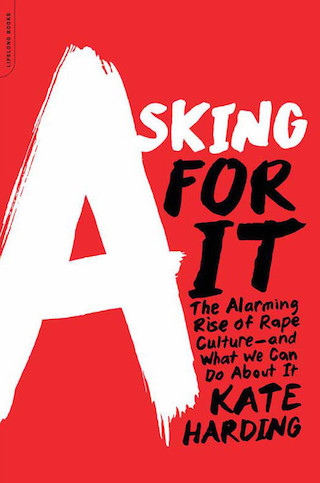
In Asking For It, Harding discusses recent issues in rape culture, including rape jokes, false reports and racism, rape kits, blame, current cases and more. In a review at the Los Angeles Times, Rebecca Carroll writes:
“The fundamentals are here — consent, politics, trolls and police accountability. But throughout, Harding offers a fluid, urgent and clear message that ends on a hopeful note. Pointing to the spike in conversations about rape on social media and in comedy series like ‘The Mindy Project,’ as well as to Emma Sulkowicz, the Columbia University student who turned her rape into a performance piece for her senior thesis by carrying a twin mattress around with her on campus, Harding writes: ‘it feels more as if a dam has finally burst. It feels as if maybe, finally, this conversation won’t taper off until sexual violence does.'”
6. Come As You Are: The Surprising New Science That Will Transform Your Sex Life, by Emily Nagoski
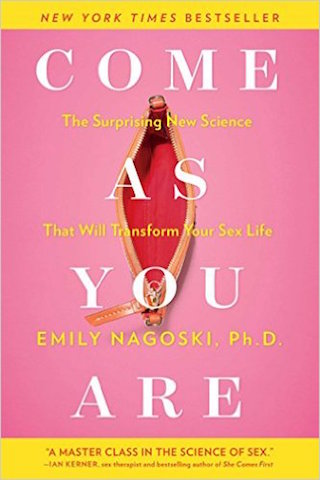
Research, brain science and sexuality come together in this exploration of desire and response that upends cultural ideas of normalcy. In an op-ed in the New York Times, Nagoski says:
“There is no reason to suspect that responsive or spontaneous desire is innate. In fact all desire is somewhat responsive, even when it feels spontaneous. But Dr. Heath and Sprout are both part of the long history of trying to call ‘diseased’ what is simply different.
When a woman experiencing responsive desire comes to understand how to make the most of her desire, she opens up the opportunity for greater satisfaction. Outdated science isn’t going to improve our sex lives. But embracing our differences — working with our sexuality, rather than against it — will.”
5. Dirty River: A Queer Femme of Color Dreaming Her Way Home, by Leah Lakshmi Piepzna-Samarasinha
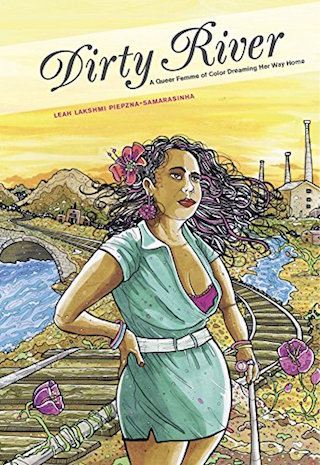
Lambda-Award-winning author Leah Lakshmi Piepzna-Samarasinha tells her own story in the autobiographical poetic Dirty River. In an email published on Little Red Tarot, she writes:
“What started as a desire to write ‘the brown girl’s version of Valencia‘ turned into a desire to try and write about some of the hardest times in my life, my early 20s where I ran away from home and the United States to deal with my family’s legacy of childhood sexual abuse, internalized racism and displacement from Sri Lanka. I also wanted to document late 90s queer of color, psychiatric survivor and queer punk of color community and life in Toronto, the city I love. To write a transformative justice childhood sexual abuse survival book that broke away from easy ideas of healing and was all queer, brown and weird everything.”
Bodymap, a collection of her poetry that Carmen calls “a tumultuous journey through otherhood, the fleeting things that change us, and the fights we have with ourselves in the mirror and in our heads,” came out this spring.
4. Lumberjanes Vol. 1, by Noelle Stevenson, Grace Ellis, Shannon Watters, and Brooke Allen

Lumberjanes is the story of five girls at scout camp when weird shit starts happening. There are trans and genderqueer and POC characters and people swear by taking feminist names in vain and it’s earnest and sweet. In announcing Lumberjanes as the winner of multiple categories in Autostraddle’s 2015 Comic and Sequential Art Awards, Mey wrote:
“From its very first issue, Lumberjanes has been consistently delivering a diverse, complex and fun team of girls going off on adventures and being not only great friends, but also their own heroes. This book tells all girls that they deserve to have friends, do anything they put their minds to and be whomever they want to be. Plus, it’s simply one of the most consistently fun, funny and exciting comics out there.”
* Disclosure: I’m married to Shannon Watters, and Grace Ellis used to work for Autostraddle, but I would 100% recommend this book no matter what, SO.
3. The Argonauts, by Maggie Nelson

The Argonauts is a part-memoir, part-theory accounting of Nelson’s relationship and queer family building. In an interview with the Rumpus, Nelson says:
“I have had a lot of ambivalence about the idea of family life, as you say. In fact, before I met Harry, “family” was not a word I ever really used or ever wanted to use, for all the familiar feminist, queer, and collectivity-based arguments against it. What became interesting via talking to him was how comfortable he was with the term, how he used it so widely and happily. It really amazed me. He would probably say this comfort came from years and years of living in a queer subculture, so that the concept for him always meant chosen family more than the nasty, privatized, oedipalized, sanctified, heterosexist, sentimentalized, used-as-an-excuse-to-persecute-all-perverts, and/or violent nuclear family. So that has probably had a profound influence on me. In some ways it was probably the condition of possibility that has allowed me to overcome my ambivalence enough to write something that could be called ‘a book about my family,’ words that still sound somewhat foreign to my ears.”
You might also remember The Argonauts from Autostraddle Book Club #8.
2. Under the Udala Trees, by Chinelo Okparanta
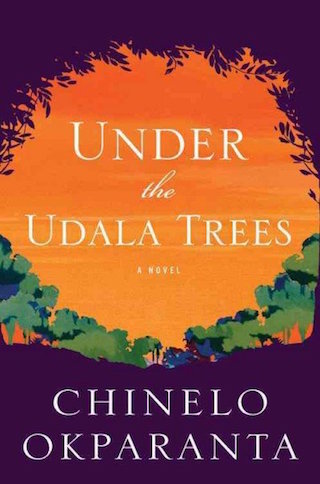
In this first novel by Chinelo Okparanta, two displaced girls fall in love against the backdrop of civil war in Nigeria. The resulting coming-of-age story “reads much like American lesbian novels of the 1950s,” writes Carol Anshaw in a review in the New York Times Sunday Book Review. In an interview with the Rumpus, Okparanta says:
“The situation in Nigeria is not all that different from many places around the world. After the publication of this book, I’ve been shocked by a handful of people here in the United States who have come up to me and said things along the lines of, ‘Well, we’ve moved on from that. Same-sex marriage is now legal in the United States, so what’s the point writing that book?’ I look at the people making the statement and I can just smell the privilege wafting out of them like perfume. And, I think to myself: this is the problem with privilege. When we live in our own privileged little bubble, it is convenient to pretend that all is well with the world, that everyone enjoys the same privileges that we do. We conveniently forget that there are others, sometimes our very own next-door neighbors, who suffer in ways that we do not. I think the novel is a testament to this: a reminder that just because we perceive ourselves free does not mean that everyone is indeed free.”
1. Girl Sex 101, by Allison Moon and K.D. Diamond
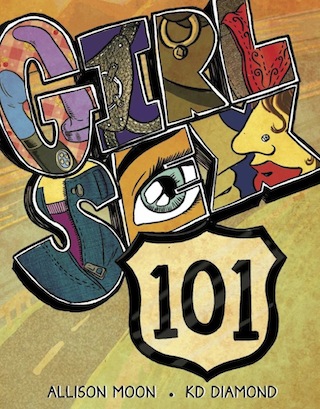
Girl Sex 101 is the ultimate roadmap to girl-on-girl sex. It’s friendly, trans- and genderqueer-inclusive, depicts all sorts of bodies, is sex positive and is the number one sex book to read right now. As quoted in “9 Sex-Life-Changing Tips From ‘Girl Sex 101,’” Moon writes:
“The thing to remember is that you’re allowed to seek and have the sex you want. You are allowed to choose your partners, choose to be celibate, choose to be slutty, choose to be monogamous, and choose to have sex solo or in groups. You get to have consensual sex when you want, as often as you want, with whomever you want. That is your right as a human in this world.”
Honorable Mentions, In The Order That Made Their Covers Look Most Aesthetically Pleasing In The Below Graphic
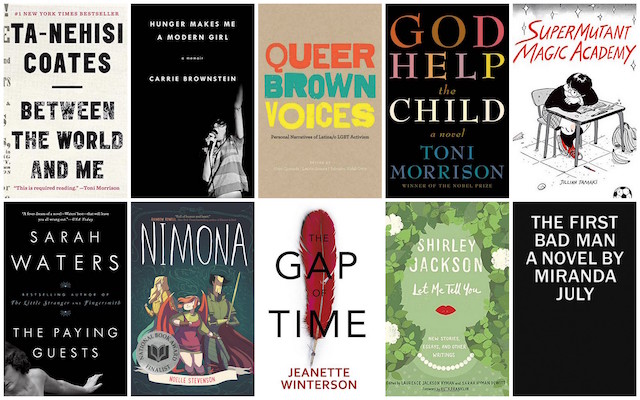
Between the World and Me, by Ta-Nehisi Coates
Hunger Makes Me A Modern Girl: A Memoir, by Carrie Brownstein
Queer Brown Voices: Personal Narratives of Latina/o LGBT Activism, edited by Uriel Quesada, Letitia Gomez and Salvador Vidal-Ortiz
God Help The Child: A Novel, by Toni Morrison
SuperMutant Magic Academy, by Jillian Tamaki
The Paying Guests, by Sarah Waters
Nimona, by Noelle Stevenson
The Gap of Time: The Winter’s Tale Retold, by Jeanette Winterson
Let Me Tell You: New Stories, Essays, and Other Writings, by Shirley Jackson
The First Bad Man: A Novel, by Miranda July
Introducing “Queer Sultry Summer,” A Mini-Book We Wrote For You
So it’s hot out and the sun almost never sets and all we want to do is celebrate ourselves and each other, take off our sweaters, eat some tomatoes and look desperately for a body of water to throw ourselves into. Alternately, you could do all that and also read the third issue in the Better Together mini-book/zine series created by Everyone is Gay and Autostraddle.com. We had some big broad plans for this one, and it was tough to narrow down the real direction we wanted to take.
Then Mey Rude came along with her Dependence Day pitch and everything clicked for us: the piece (which I won’t tell you much more about ’cause you’re gonna read it and love it as soon as this book arrives in your mailbox) was exactly the spirit we’d wanted put hadn’t been able to put into words.
So, presenting our most ambitious print project to date: Queer Sultry Summer, a 68-page color ‘zine/mini-book. We’re pretty f*cking proud of it.

We wanted this collection of essays to be about having so much real fun (even in a fucked-up, patriarchal world) because it’s summer and you deserve it. You deserve to be with your chosen family of weirdos, celebrating and making your own rules, declaring your own traditions.
For Queer Sultry Summer, we gathered stories from queers who’ve made their own Pride celebrations and their own holiday, worn the damn shorts, battled the bear, sported the body hair, survived the church camp, found gratitude in the fact that it’s not the 1800s, found themselves in the country, beneath the stars… and didn’t give up.
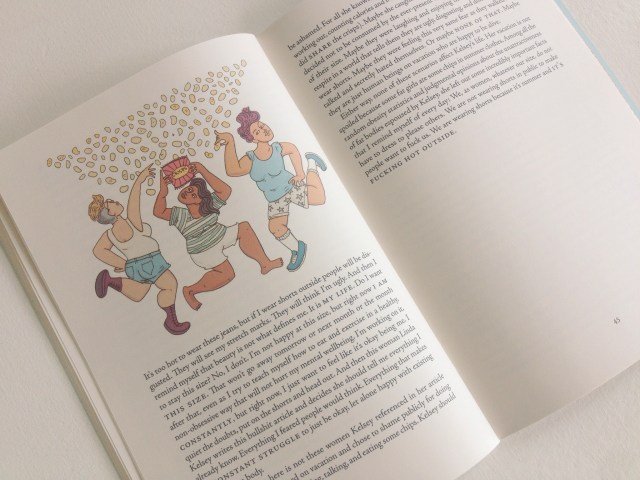
We went all out for this mini-book, jam-packing each page with every hope and dream we ever hoped or dreamed. Last year when we asked you about which products you’d like Autostraddle to sell, most of you picked “print magazine” as the one you’re most drawn to. We think this is our greatest accomplishment in that department.
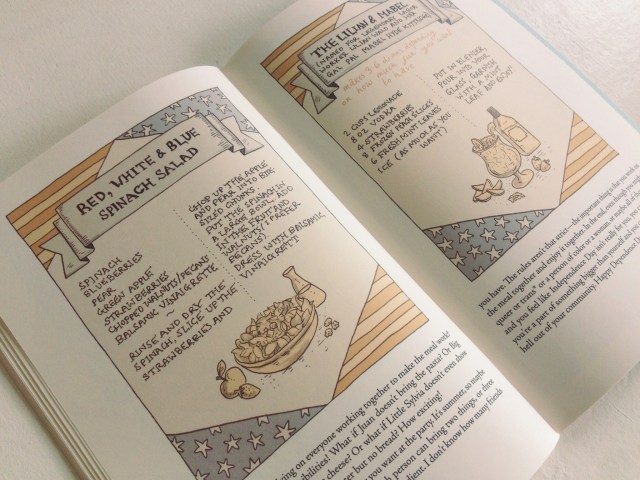
Contents include:
- Poetry by Eileen Myles
- An original Lumberjanes comic from BOOM! Studios commissioned exclusively for this book
- Brand new work and beloved essays by authors including Mal Blum, Maddie Taterka, Mey Rude, Elicia Sanchez, Amy Dobrowolsky, Malaika Aleba and Lila Cherneff.
- “Get Sweaty” playlist by Brittani Nichols
- Riese’s Sultry Summer Crossword Puzzle that took three days to put together
- “How to Make Iced Coffee,” a comic by Rory Midhani with words and recipe by Rachel Kincaid
- Hilarious Top Tens you’ve never read before from Riese Bernard, Kristin Russo and Dannielle Owens-Reid
- Laneia‘s Queerish Summer Scavenger Hunt (tag your finds on instagram and you could win a special prize!)
- The story of when Kristin Russo almost got eaten by a bear, with footnotes by Jenny Owen Youngs
- Advice from Everyone is Gay
- Cut-out bookplates by Rory
- Yearbook-style autograph pages for your new/old summer friends
PLUS:
- The first print run of this issue includes a bonus insert: four pages of adorable summer paper dolls created by Rory Midhani. This is a limited edition inclusion, so get yours now if you wanna get some of those (and trust me: you do).
- If you order your copy by Saturday, June 20th, we’ll throw in a FREE “You Do You” Sticker!
Get Yours Now for $20 at the Autostraddle Store
While you’re there, check out the first two issues in this series: OMG I’m Gay and I Broke Up Like This!
Support independent women’s media and the good work done by Everyone is Gay and Autostraddle!
Happy International Fisting Day! Here’s Some Willfully Misinterpreted Lesbian Poetry
Feature image by Nomy Lamm via the fisting day tumblr.
Today is International Fisting Day! A day for spreading the joy and knowledge of fisting throughout the internet so those who aren’t familiar with it can learn and those who are can fist bump.
Jiz Lee, one of the people who started International Fisting Day in 2011, writes about why fisting isn’t scary, why everyone should try it and why it’s just amazing:
“What I love about fisting someone vaginally (or through their front hole, if they don’t associate with the v-word) is feeling them TAKE ME IN. There’s a moment where the person just opens up to you. Once inside, they’re warm, wet, and every little movement you make can be felt. It’s something that may take time. Fisting is something that doesn’t necessarily happen right away. You put a finger in. Then two. Then three, four, and then… and sometimes after long and gentle coaxing, the thumb. Sometimes lovers can try several times in sex before fisting happens. But once you’re in, it’s golden! You can angle your hand for G-Spot stimulation. You can find your lovers’ ‘A Spot,’ which is just under the cervix towards the back. Some like to feel a bit of pressure there. You can carefully stroke and ‘jerk-off’ the cervix, as if it were a small, internal cock. Unlike using a strap-on or dildo toy, my hand can feel every motion. It’s incredibly intimate and really sexy. If the chemistry and connection with my partner is strong, I can come from penetrating with my hand!
As someone who loves to receive a fist, I enjoy an unparalleled feeling of fullness. The most sensitive areas of the vagina are just within the first few inches inside. I like to use my kegel and pelvic muscles to grip snugly around a lovers’ wrist, which can be compared to the girth of a medium-large dildo. Deeper inside, pressure feels really good for me. […] Combining clitoral and vaginal stimulation, the network of nerves and contracting of muscles orchestrate some of the most amazingly intense orgasms I’ve ever had.”
In the past, we’ve written about five fisting tips, published a cool infographic and fisting love story and generally shared resources, but there are only so many ways to say “lube up and make your hand look like you’re reaching into a Pringles can very, very gently” so this time we’re celebrating fisting through pure poetry.*
*I may be willfully misreading and decontextualizing some of the following poems and excerpts so that they are more relevant to actual fisting as opposed to receiving love or four fingers but no thumb or whatever.
“#184” by Anna Pulley
Why you should be proud
to have small hands: sewing,
picking your teeth, fisting.
“this is what it looks like when it finally comes” by Leah Lakshmi Piepzna-Samarasinha
I open under her hand
wider than I ever have
and there’s no clenched fist vulva, no bleeding,
no little welts rising up on my labia saying no
I open to her fist like the biggest cracked grin
bigger than anything I’ve known how to know
“Love Poem to a Butch Woman” by Deborah A. Miranda
Sweetheart, this is how it is:
when you emerge from the bedroom
in a clean cotton shirt, sleeves pushed back
over forearms, scented with cologne
from an amber bottle—I want to open
my heart, the brightest aching slit
of my soul, receive your pearl.
I watch your hands, wait for the sign
that means you’ll touch me,
open me, fill me; wait for that moment
when your desire leaps inside me.
“The Aureole” by Nikky Finney
The stars over the Atlantic are dangling
salt crystals. The room at the Seashell Inn is
$20 a night; special winter off-season rate.
No one else here but us and the night clerk,
five floors below, alone with his cherished
stack of Spiderman. My lips are red snails
in a primal search for every constellation
hiding in the sky of your body. My hand
waits for permission, for my life to agree
to be changed, forever.
“The Dream” by Aphra Behn
The soft resistance did betray the grant,
While I pressed on the heaven of my desires;
Her rising breasts with nimbler motions pant;
Her dying eyes assume new fires.
Now to the height of languishment she grows,
And still her looks new charms put on;
Now the last mystery of Love she knows,
We sigh, and kiss: I waked, and all was done.
“Dear Andrea” by Eileen Myles
I love you too
don’t fuck up my hair
I can’t believe
you almost
fisted me
today.
That was great.
Rebel Girls: The Women I Wish I Could Vote For
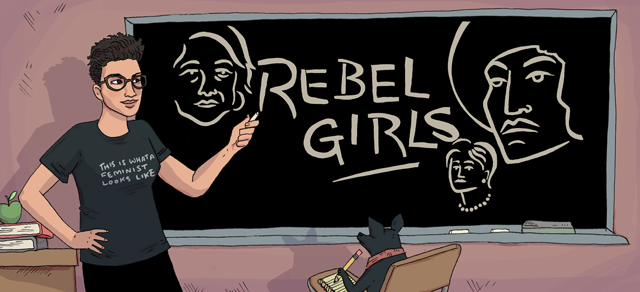
Header by Rory Midhani
Over the next few weeks, people will vote in the 2014 midterm elections across the United States, deciding on a series of ballot measures and hopefully electing new people to Congress who don’t suck. That doesn’t mean we’re not already talking about the upcoming 2016 presidential elections, though, because everyone at CNN’s gotta eat. And although the nation’s highest offices have been sought by many badass women, we have yet to be listed as President or Vice President slot in anyone’s history textbook. It’s enough to make me wish we could go back in time and vote for, well, these chicks.
Victoria Woodhull
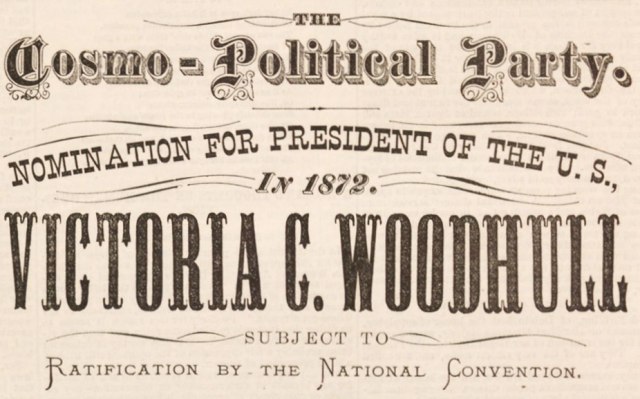
“It makes no difference who or what you are, old or young, black or white, pagan, Jew, or Christian, I want to love you all and be loved by you all, and I mean to have your love.” (via)
Victoria Woodhull declared her intent to run for President in1871, before women were even legally allowed to vote. In 1872, she was nominated by the Equal Rights Party, with famed abolitionist Frederick Douglass as her elected running mate. Woodhull was a longtime advocate of free love, which was controversial times a million in her time, and was arrested on obscenity charges days before the election that year for publishing an account of a Reverend’s sexual affair for public consumption. Disrupted but not deterred, she ran again in 1884 and clinched a nod from the National Woman Suffragists’ Nominating Convention in 1892. Woodhull was a eugenicist, someone who promoted deadly racist ideology through restricting human reproduction, and that philosophy has no place in office, but many of her other contributions laid the ground for important breakthroughs later in American history.
Shirley Chisholm
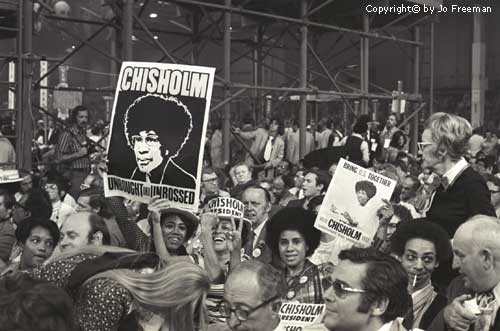
“When I die, I want to be remembered as a woman who lived in the 20th century and who dared to be a catalyst of change. I don’t want to be remembered as the first black woman who went to Congress. And I don’t even want to be remembered as the first woman who happened to be black to make the bid for the presidency. I want to be remembered as a woman who fought for change in the 20th century. That’s what I want.” (via)
Shirley Chisholm was elected to Congress in 1968, making history then as the first-ever African-American woman to reach such an office. While serving out her seven terms, she founded the Congressional Black Caucus. None of this history-making satiated Chisholm’s fire, though, and in 1972 she became the first-ever black candidate on a major party ticket when she fought for the Democratic nomination for President. Her campaign slogan was simple: unbought and unbossed. The Chisholm Trail, as her bid was called, garnered votes in 14 states and the support of 151 delegates at the Democratic Convention, but didn’t win her a spot on the ticket that year. After the loss, she went on to co-found the National Political Congress of Black Women.
Geraldine Ferraro
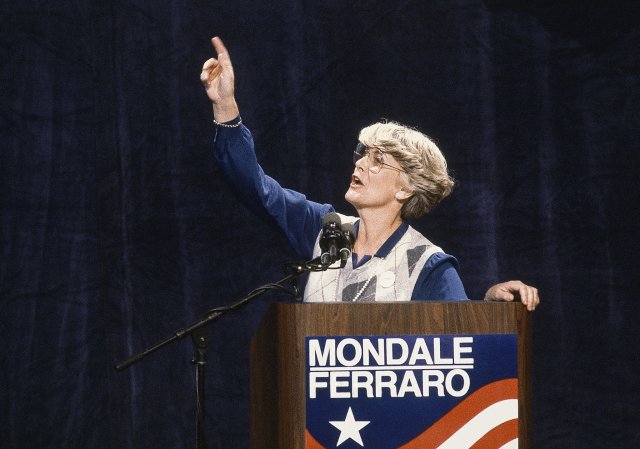
“Nobody had greater confidence in me than my mother. She always said, ‘My daughter is going to be famous.’ When Walter Mondale asked me to be his running mate, my mother was the first person I called after my husband. She was so excited. She thought that I could do anything. She was probably the only person in the country who was surprised that we didn’t win.” (via)
Geraldine Ferraro was nominated for Vice President by Democratic presidential candidate Walter Mondale in 1984 following her election to the House of Representatives in 1978. She was an outspoken feminist during her time as a Representative, which led groups like the National Organization for Women to successfully push Mondale for her selection in the 1984 election against Ronald Reagan and George H.W. Bush. Although the pair wouldn’t succeed at disrupting the reign of Reaganomics and the War on Drugs, Ferraro would go on to become an active politician, pundit, and advocate throughout the remainder of her life.
Eileen Myles
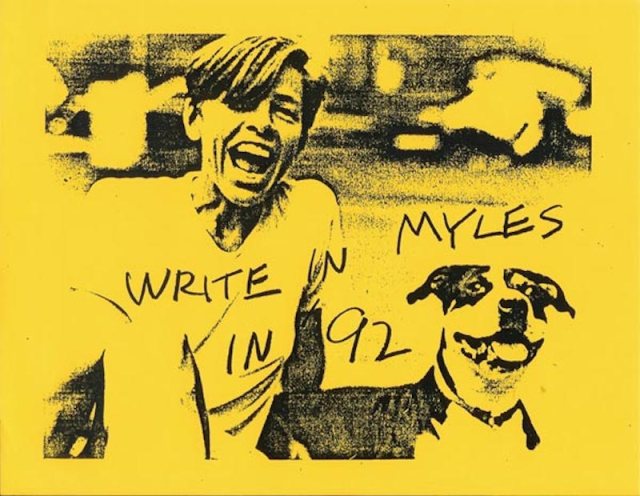
“You really have to be a native-born American citizen to do this and at least 40 years old. Once the campaign starts to heat up, out of the corner of your eye, watch and see what the other candidates are doing. As you’re walking your dog, opening your mailbox, as you’re making love, as you’re slowly waking up in the morning, think about what the other candidates are doing. Try to think of their collective statements about what’s right and what’s wrong with America as a pool. Choose your moment carefully and jump in. Jump when you know that the only thing that would make sense this year would be if you ran for President of the United States. You know, they really
can’t stop you. In except for maybe two states, Nevada being one, any citizen can be a written-in candidate. In New York, for instance, you simply need 33 of your friends to sign affidavits saying that if you won they would go to the electoral college for you. You can just call them from home, and they probably wouldn’t mind bringing the affidavits over. They can get them notarized by a travel agent. No big deal. Soon people will be wanting a platform and that hinges on what was going on at the moment you jumped in. In 1992, I was moved by the realization that the candidates were not writing their own speeches and I knew that I would want to do that. They were not saying what was on their minds and I knew I would want to do that as well. This year I would probably not say what was on my mind so you can see how from year to year a woman’s candidacy can change. It’s a flexible thing. This year I would probably stay out of America during the entire campaign period and court the votes of all the Americans who are not living there. I would try and represent their needs. Maybe they would have very few needs, their main one being to not be in America, which would be already be fulfilled. I would have an easy time representing all those absent people. Our slogan could be, ‘We are not there.'”(via)
Eileen Myles, hopefully your favorite lesbian writer and my greatest inspiration, ran as an “openly female” write-in candidate for President in 1992. Her campaign, in which she pushed for peace and inclusivity, universal healthcare, cuts in domestic spending, and abolishing the income tax, stretched across 28 states and Europe. No total count of votes she received has ever been recorded, which is a damn shame because she also promised to write all her own speeches. Contrary to the world I’ve imagined in my mind, Myles told me in our last interview that she no longer writes in her own name, but you can access her campaign archive on her website.
Hillary Clinton

“Now, on a personal note, when I was asked what it means to be a woman running for president, I always gave the same answer, that I was proud to be running as a woman, but I was running because I thought I’d be the best president.
But I am a woman and, like millions of women, I know there are still barriers and biases out there, often unconscious, and I want to build an America that respects and embraces the potential of every last one of us.
I ran as a daughter who benefited from opportunities my mother never dreamed of. I ran as a mother who worries about my daughter’s future and a mother who wants to leave all children brighter tomorrows.
To build that future I see, we must make sure that women and men alike understand the struggles of their grandmothers and their mothers, and that women enjoy equal opportunities, equal pay, and equal respect.
Let us resolve and work toward achieving very simple propositions: There are no acceptable limits, and there are no acceptable prejudices in the 21st century in our country.” (via)
I don’t need to give background information on Hillary’s run, seeing as you probably didn’t live under a rock six years ago. BUT! Just in case you did, Clinton’s historic candidacy for the presidential nomination of the Democratic party in 2007 made millions of cracks in the glass ceiling for women and politics and shattered my heart into a zillion pieces. Although her attempt for the nomination broke boundaries for women as the most successful of its kind, her campaign also reminded politicians and spectators alike that sexism is alive and well in American politics. From sexist attacks across party lines to inappropriate interview questions and a tireless stream of news cycle information about her clothing, Clinton’s campaign was marred by — and, in my opinion, destroyed by — misogyny. Although Clinton’s politics aren’t perfect, just like every other politician, but it wasn’t her politics that got her sidelined as a potential President; it was her gender.
History’s not done rewriting itself, though, and after a successful career as Secretary of State Clinton is the predicted frontrunner for 2016. In honor of the women who came before her and in honor of my own deep feelings about her brain, I say bring it on, world. This time, we just might be ready.
Rebel Girls is a column about women’s studies, the feminist movement, and the historical intersections of both of them. It’s kind of like taking a class, but better – because you don’t have to wear pants. To contact your professor privately, email carmen at autostraddle dot com. Ask questions about the lesson in the comments!
Lez Liberty Lit #17: You Hate The Word “Moist” For A Reason
by carolyn & riese
Header by Rory Midhani

Lit Links
Rachel Hurn writes about stalking lesbian poet Eileen Myles at the Paris Review:
“Eileen is a mess, Chelsea Girls is a mess, and I was a mess when I read it. My writing meaning nothing and everything: ‘Wet words on soft limp paper. Holy Holy Holy.’ I loved every one of Myles’s sentences; I couldn’t get enough. I could be like her, this fictional nonfiction character—this mild sort of fuckup—if I wanted to be. ‘There would be such a future because something would happen to me. Soon. I was sure of that.'”
Harriet the Spy stands up well to a queer re-reading.
The California Department of Education has 32 “LGBT-themed” books on its latest list of recommended reading for students in grades K–12. Though similar lists have included gay content in the past, this year’s is notable because of all the backlash its facing.
Related: this list of the 10 LGBT-themed novels every student should read includes Michelle Tea, James Baldwin, Jean Genet, Alice Walker, Alison Bechdel and more.
Amazon bought Goodreads and even though it’s slightly upsetting it’s important to look at the state of publishing before freaking out.
Ever wanted to see Rae Spoon and Ivan E. Coyote preform Gender Failure but it was sold out or you mixed up the dates or you live somewhere they haven’t been to yet? Now you can watch the show online.
“Whom” is America’s least-favorite pronoun, mostly because its users are both right but also pompous twerps. It’s also been dying since 1826.
Word aversion (such as hating the word “moist”) is part of human psychology, according to a growing body of literature and also Slate.
Writing programs should teach their students useful skills besides writing, like accounting, concentrating, grant writing and charm.
Discussing iconic women in literary L.A.
Sometimes the best insults are literary insults.
Just as the best graffiti is literary graffiti.
“Unnecessary” quotation marks, as used for unintentional comic effect.
Rae Spoon’s First Spring Grass Fire has been nominated for the Expozine Alternative Press Awards.
At the Lesbrary, Anna reviewed Without Warning, a lesbian romance novel by K.G. MacGregor. Danika reviewed Licking the Spoon: A Memoir of Food, Family and Identity, by Candace Walsh. Kristi reviewed Hallowed Murder, a classic lesbian mystery by Ellen Hart.
At Lambda Literary, Victoria Brownsworth rounds up the best of spring lesbian mysteries, including titles by Robin Silverman, Charles Atkins, Mary Vermillion and more. Cathy Camper reviewed Calling Dr. Laura, a graphic memoir by NIcole J. Georges. Rachel Wexelbaum reviewed Body Geographic by Barrie Jean Borich. Courtney Gillette reviewed Nevada, a novel by Imogen Binnie.
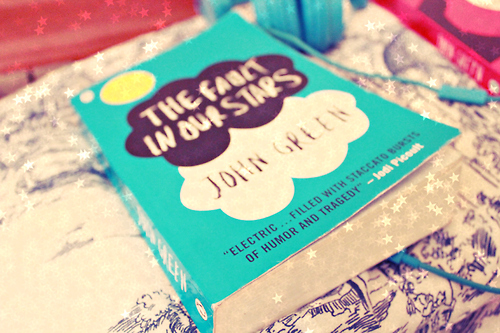
via the booker
Casey the Canadian Lesbrarian reviewed Emma Donoghue’s Astray, a collection of interconnected short stories.
Don’t forget to check out all the awesome book-related things we published recently: Gabby wrote about the new Sister Spit anthology and interviewed Michelle Tea. Rose wrote about mood in literature and a comic book about street harassment. Riese wrote about the National Magazine Award finalists. Vanessa interviewed poet and activist Andrea Gibson. Riese also wrote about 10 literary pinterests.
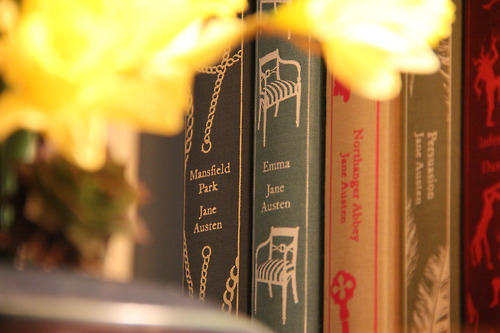
via the booker
Events To Watch Out For:
April 6, Seattle: Sister Spit, starring Michelle Tea, Ali Liebegott, TextaQueen, Tamara Llosa-Sandor, Daniel LéVesque and DavEnd, will be at Richard Hugo House (1634 11th Ave), 8:00 p.m.
April 13, New York: Join Ryka Aoki, Imogen Binnie and Terrence Diamond for a panel discussion on the current state of new transgender fiction as part of the Rainbow Book Fair (Holiday Inn, 440 W 57th St), 1:00 to 2:15 p.m.
April 14, Pittsburgh: Author Imogen Binnie appears on tour for her new book, Nevada, along with poet Sohan Patel (5125 Penn Ave.), time TBA.
April 16, Toronto: Sister Spit, starring Michelle Tea, Ali Liebegott, TextaQueen, Tamara Llosa-Sandor, Daniel LéVesque and DavEnd, will be at the Gladstone (1214 Queen St. W), 7:00 p.m.
April 18, Chicago: Queer poet Andrea Gibson will be at the University of Chicago (5710 S. Woodlawn), 7:00 p.m. Call 773-702-1234 for details.
April 20, Chicago: Sister Spit, starring Michelle Tea, Ali Liebegott, TextaQueen, Tamara Llosa-Sandor, Daniel LéVesque and DavEnd, will be at The Hideout (1354 W Wabansia Ave.), 9:30 p.m.
April 23: Tonight is World Book Night.
April 24, Toronto: Author Imogen Binnie appears on tour for her new book, Nevada. Details TBA.
April 24, Columbia, Missouri: Poet Andrea Gibson will be at the University of Missouri. The Pride Parade is at noon. Her show is at 7 p.m. (Mark Twain Ballroom, Memorial Student Union, 518 Hitt St.). Call 573-882-2121 for details.
May 18, Scranton, Pennsylvania: Poet Andrea Gibson will be at the Vintage Center (326 Spruce Street), 7:00 p.m. Call 570.589.0271 for details.
Know of a queer event with literary merit? Send it to us!
What We’ve Been Reading:
Riese: Sigh, I don’t even know where to begin with this book I picked up at Moe’s. It’s called Sexual Metamorphosis: An Anthology of Transsexual Memoirs and it’s edited by Jonathan Ames, one of those nerve.com-ish self-deprecating bad-sex-exploits-telling funny insecure male writer guys. I used to read his stuff before I started hating men and would laugh sometimes. I’m pretty sure I’ve read him talking about having a trans* fetish at some point, which should’ve been an alarm re: this book, but regardless — the anthology is basically a collection of first-person narratives extracted from the memoirs and autobiographies of transgender people from 1886 until the present day. So, because I know one of the main criticisms of trans* narratives is that they’re so frequently told by cis people, I was still excited to read this book despite my trepidation about Ames’ background. In general as a human I’m kind ashamed of the ignorant and hurtful things I used to naively digest and believe about trans* folks, so whenever I see a used book written by a trans* person I pick it up, hoping to learn/understand better. And aside from the introduction, this book was by trans* people. And I did learn about so many people I hadn’t heard of; like Caroline Cossey, Deirdre McCloskey, Christine Jorgensen and Jan Morris! But Ames’ choice of excerpts was so problematic and almost a parody of itself: he literally extracted and published only the chapters and bits-of-chapters about getting dressed/putting on makeup, having surgery, being rejected by their partners, and having sex. I think I read at least ten detailed descriptions of surgery — and I’m not squeamish, but I wanted to know about their hearts and minds, not about surgery, and the first thing you learn about transgender media representation is that the media is overly fixated on The Surgery and The Sex and The Outfits, and so I felt annoyed/angered by the editor’s fixation on these things. (Disclaimer: I’m a cisgender human, so please correct me if I’m wrong or misinformed about anything!) Anyhoo, I felt like Julia Serano would hate this book.
Carolyn: This week instead of reading books I cleaned out three boxes’ worth of them from my apartment and then I spent a lot of time feeling vindicated about my current state of organization – and if that doesn’t count as procrastination from my to-read pile I don’t know what does. Anyway, then I read Selected Poems: The Vision Tree by Phyllis Webb, who I would describe as a less conflicted Canadian Eileen Myles. Webb pays a lot of attention to form, which is neat if you think about text a lot (relatedly, I also read Bonnie Mak’s How the Page Matters), and quite a few of her poems seem to be about being in bed with ladies, and she uses an interesting combination of structure and playfulness.
Idol Worship: Two Idols Are Better Than One, Especially When Those Two Idols Are Together
Welcome to Idol Worship, a biweekly devotional to whoever the fuck I’m into. This is a no-holds-barred lovefest for my favorite celebrities, rebels and biker chicks; women qualify for this column simply by changing my life and/or moving me deeply. Valentine’s Day is coming up! And it’s the perfect time to celebrate the girl-on-girl couplings that made and continue to make history together.
Header by Rory Midhani
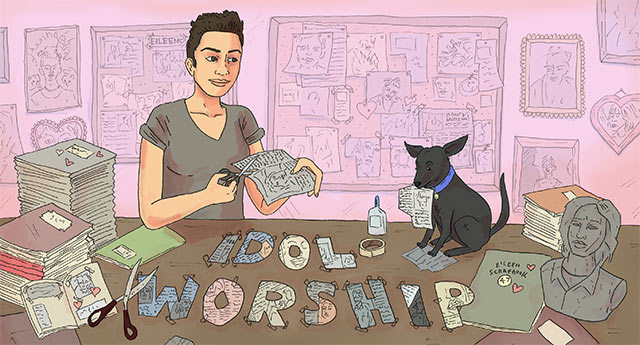
A note: the math here is simple – two idols are better than one, especially when they come as some sort of “package deal” with one another. But what isn’t simple are the labels. Not all of the couples here are “lesbian couples,” nor are they all “married” or even officially “partnered” in some way. But they’re all lady-loving-ladies I love loving a lady I also love in a somewhat official manner, and that’s all that matters.
Eileen Myles and Leopoldine Core
When one poet is in love with another poet, are there a lot of cliches? This is a question I have yet to ask Eileen Myles, lesbian poet extraordinnaire, who is dating fellow poet Leopoldine Core. To be fair, they do make poems together.
Although they are separated by more than a handful of years, the two women have truly begun a chapter of their lives completely immersed in one another. Eileen talked to me a little about Leopoldine when we met – just enough to convince me that their relationship was nothing if not absolutely perfect. Spunk and charm, all rolled up into one. And if a conversation with one of them taught me something, it’s that a conversation between two poets probably always sounds beautiful.
I’d also like to submit Leopoldine and Eileen as proof that couples who raise dogs together stay together.
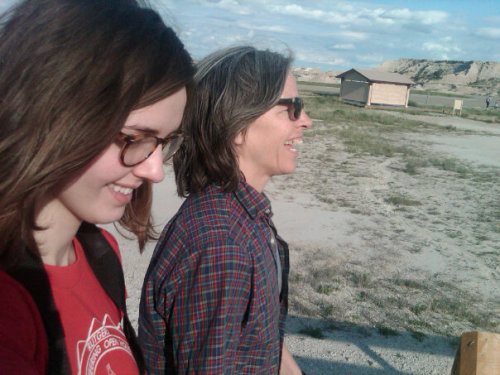
Ellen and Portia
When a day comes where I lose faith and want to give up, I will always – always – look for a gallery of images from Ellen DeGeneres and Portia de Rossi’s wedding. You don’t need background information on these two, unless you’ve been buried under a rock for twenty years. But you probably do need more time to be deeply moved by their wedding photos.

Danielle and Aisha Moodie-Mills
Danielle and Aisha Moodie-Mills are a Washington, DC power couple often found looking fabulous and/or working incredibly hard – together. They write and publish ThreeLOL, a blog about “living, loving, and laboring out loud,” and co-host Politini, a radio show where they serve politics and pop culture up with a twist.
Danielle and Aisha met when they were helping a mutual friend move out of his apartment, and it was love at first sight as they spent the night talking to one another in his windowsill. They were one of the first same-sex couples to legally marry in DC, as well as two activists on the forefront of the movement to make their wedding legally possible there in the first place. Their wedding was the first same-sex ceremony to be featured in Essence magazine.
They’re an inspiration to us all, not only as effective humans but as potentially one of the most attractive couples of all time.
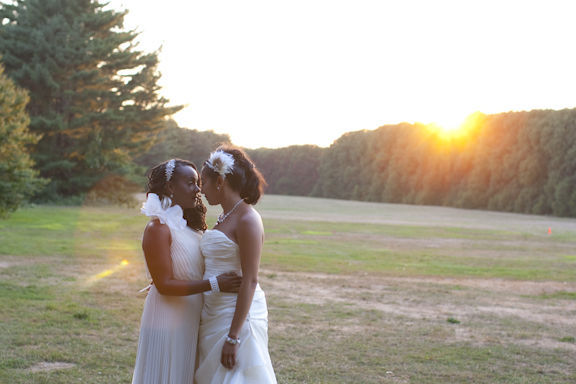
Robin and Carly
Robin and Carly are perfect humans who had a perfect wedding that they deserved after all of the perfection they hath laid upon the Earth prior and continue to lay now in its current state of increased perfection.
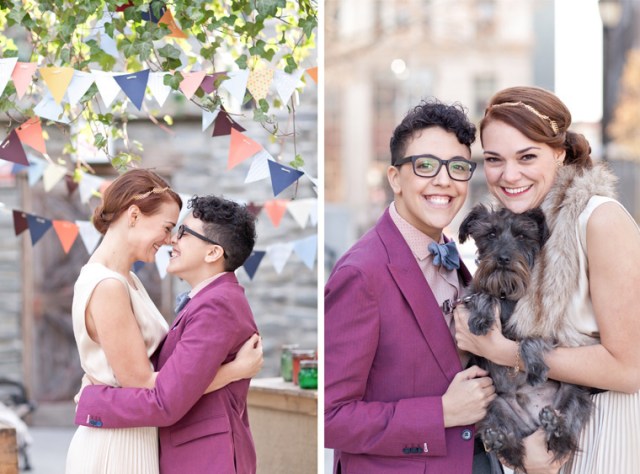
photo by kelly kollar
Cynthia Nixon and Christine Marinoni
My relationship with Cynthia Nixon is complicated, mostly because it’s a reluctance, I believe, in every smart girl’s life to embrace her occasionally frumpy Sex & The City character as being pretty much her mirror image. But outside of Miranda, Nixon is an outspoken advocate for gay rights and a unique voice in our culture’s ongoing struggle to define and explain human sexuality.
Nixon married her wife, Christine Marinoni, an education activist, in May of 2012. They had been engaged for three years, and have been together since 2004. They even have an adorable little son together, you guys.
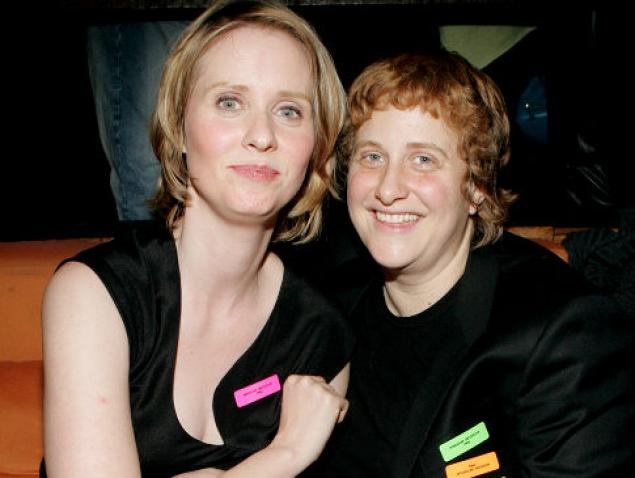
Gertrude Stein and Alice Toklas
When Alice Toklas went to Paris on September 8, 1907, she met more than a city. She met her life partner, Gertrude Stein:
She was a golden brown presence, burned by the Tuscan sun and with a golden glint in her warm brown hair. She was dressed in a warm brown corduroy suit. She wore a large round coral brooch and when she talked, very little, or laughed, a good deal, I thought her voice came from this brooch. It was unlike anyone else’s voice — deep, full, velvety, like a great contralto’s, like two voices.
The two women, author and Parisian avant-garde personality, built a life together which indeed lasted forever, seeing as they’re buried next to each other right now. And in a time when no one was out or talking about le queers, the two women resided in France and America together completely and totally proud of who they were, alone and together.
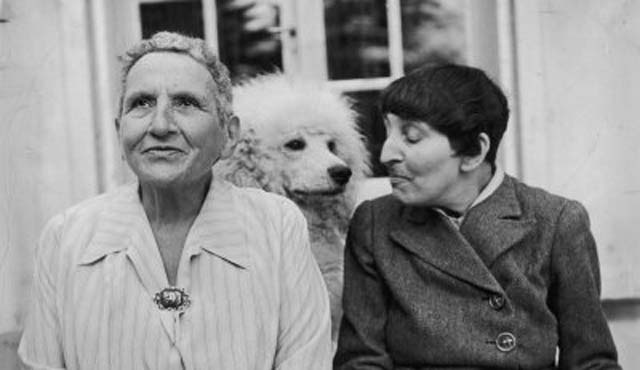
Eleanor Roosevelt and Lorena Hickok
As a little girl, I was deeply moved and inspired by Eleanor Roosevelt. We learned about her very vaguely in school, but by the age of seven I’d decided to go into politics and so my mom encouraged me to read up on her. We even visited her home and walked around the grounds once! (Side note: FDR and Eleanor had an adorable dog named Fala.) I loved what I learned about her: Eleanor was intelligent, astute, emotionally mature, forgiving, loving, kind, compassionate, good. But like most good women, she suffered, struggling to be taken seriously in order to do good, facing betrayal by her husband and daughter, and dealing inevitably with the crippling powers of sexism that limited her own ability.
It was immensely relieving to learn, then, about Lorena Hickok, the woman Eleanor loved until her own death. A reporter Eleanor called “Hick” (I’m feeling lesbian vibes already – off the record, of course), she was assigned to the inauguration of FDR but got more than expected when Eleanor and her began a relationship that endured for years.
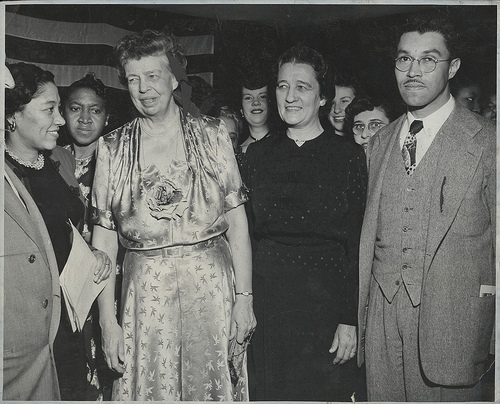
The relationship was censored heavily – by both the two women themselves and the rest of the world – but still Eleanor exchanged over 3,000 letters with Lorena and even entertained her at the White House.
They read at first blush like the plaints of a lovelorn schoolgirl. “Oh dear one,” begins a letter dated 1933. “It is all the little things, tones in your voice, the feel of your hair, gestures, these are the things I think about and long for.” Goes another when the two were apart: “Hick darling. Oh I want to put my arms around you. I ache to hold you close. Your ring is a great comfort. I look at it and think, she does love me, or I wouldn’t be wearing it.”
Del Martin and Phyllis Lyon
Quite possibly America’s first power lesbian couple, Dorothy “Del” Martin and Phyllis Ann Lyon brought the fire. They met in 1950, started dating in 1952, and moved in together on Valentine’s Day of 1953. Together, they were unstoppable: they founded The Daughters of Bilitis in 1955 – viewed as the first official organization for lesbian women – and also edited The Ladder until 1963, were the first lesbians to enroll in NOW, did work in California to make homosexuals welcome in churches, wrote books together, and supported and influenced a demand for non-discrimination legislation for queermos.
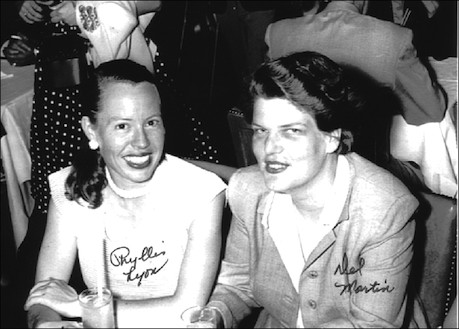
On June 16, 2008 Martin and Lyon became the first same-sex couple to be married in San Francisco. They were together until Martin’s death two months later in August.
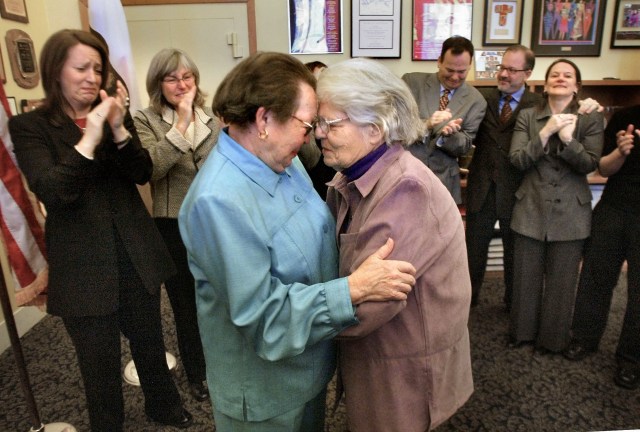
You Should Go: PUSSY RIOT! Book Launch in NYC
It was almost one year ago that five members of Pussy Riot, a Russian feminist punk collective, performed their “Punk Prayer” in the Cathedral of Christ the Savior in Moscow, asking the Virgin Mary to drive Vladimir Putin out of the church. They themselves were chased out of the church by security in under a minute, but once a video of the events hit the internet, a global feminist movement was ignited. Maria Alyokhina, Nadezhda Tolokonnikova, and Yekaterina Samutsevich were arrested and charged with felony hooliganism motivated by religious hatred; but that was only the beginning. The three women, also known as Masha, Nadya and Katya, captivated the world with their beautifully articulated court statements that called for freedom from oppression. Throughout their trial, the women were supported by other grassroots feminist activists, as well as celebrities like Madonna and Paul McCartney. Despite the global outcry of support, they were sentenced to two years in prison.
In honor of Pussy Riot, The Feminist Press in New York City put together an e-book of their letters from prison, courtroom statements, defense attorney closing arguments, poems, and the punk prayer that started it all; as well as tributes to the band by Yoko Ono, Eileen Myles, JD Samson and more. The profits of the e-book sales went to Pussy Riot.
On February 7, at Barnes & Noble Union Square, the print edition of PUSSY RIOT! A Punk Prayer for Freedom is launching, and you should really go to it. The print edition is an updated version of the e-book and includes new courtroom statements from the October 10 appeal, as well as tributes by Bianca Jagger, Peaches & Simonne Jones, Tobi Vail, Barbara Browning and Vivien Goldman. The event itself is going to be super amazing: Justin Vivian Bond, Barbara Browning, Vivien Goldman, Karen Finley, Johanna Fateman, Eileen Myles, and Laurie Weeks will be reading from the book! Eileen Myles, you guys.
This the the first publication of Pussy Riot’s words. Their significance has been largely left to the media to interpret, and in that process their original intentions are often glossed over, minimized and dismissed as rabble rousing rather than purposeful activism. The book provides a unique opportunity to read Pussy Riot’s mission straight from the mouths of the brave women who sacrificed so much to make the world hear their punk prayers.
Here are some excerpts from the appeal statements in case you don’t believe me about how exciting and important this is:
We are not guilty. I think this is obvious. I also think that our court sentence should be declared invalid. Dear believers, we did not want to insult you. We have never had such intentions. We went to the cathedral to voice our protest against the merging of religious elites with the political elites of our country… We have been jailed for our political beliefs. Even if we are sent to Siberia we will not be silent.
—Masha
It’s painful for me to hear that I am speaking out against religion. I have no religious hatred and never have. I want to warn that everything that is happening in Putin’s third term is leading to the end of stability. In two years there will be civil war, because Putin is doing everything to ensure that… We’ll be going to a prison colony while civil war is brewing in this country. Putin is doing everything to make this happen. He is setting people against each other.
—Nadya
If we unwillingly hurt any of believers by our actions, than we apologize for that. The idea of our action was political, not religious. In our previous actions, as in this one too, we have been protesting against the power of the current president, against the merging of the church with state authorities, and against the political statements by the patriarch. Therefore I believe I have not committed a crime. This is the joint position of all three of us. There is no split within Pussy Riot.
—Katya
See you there!
Lez Liberty Lit #12: I Owe Everything To Being Queer
by carolyn & riese
Books! They are really great. You just won’t believe how great they are. You may think that the Internet’s great, but that’s just peanuts compared to books. Welcome to Lez Liberty Lit, our column about literary shit that’s happening that you should probably care about. We’re aiming to put one of these together twice a month. The name “Liberty Lit” was inspired by the short-lived literary journal produced by Angela Chase at Liberty High School in 1994.
Header by Rory Midhani

Lit Links
At the Rumpus, Adrienne Skye Roberts interviewed Tirza True Latimer, queer feminist art historian and the author of Women Together/Women Apart: Portraits of Lesbian Paris, co-editor of Modern Woman Revisited: Paris Between the Wars and co-curator of Seeing Gertrude Stein: Five Stories. The interview covers queerness, social activism, academia, poetry, construction, being an artist and more:
Tirza True Latimer: I owe everything to being queer.
The Rumpus: What does that mean?
Latimer: Misfitting in my given environment meant that I didn’t really have to try to be a debutante or get married. It was like having another set of standards or ambitions. When I was much younger before I had—Well, we didn’t actually say queer until later—but before I had a language for the kind of misfitting that I felt all along, I was just determined to be an artist because that was a pass.
Last Sunday’s Rumpus interview was with Margaret Atwood. It is essential reading.
In a rare audio recording, Gertrude Stein reads from her novel The Making of Americans. Maria Popova calls the novel, written between 1902 and 1911, “a pinnacle of her signature use of repetition as a sensemaking mechanism.”
Reading the words of writers you really hate can be a lot of fun.
These videos of 1940s book printing are basically like porn if you are into typesetting and printing and hot lead.
Malinda Lo writes about authors with agendas, social issues and general awkwardness.
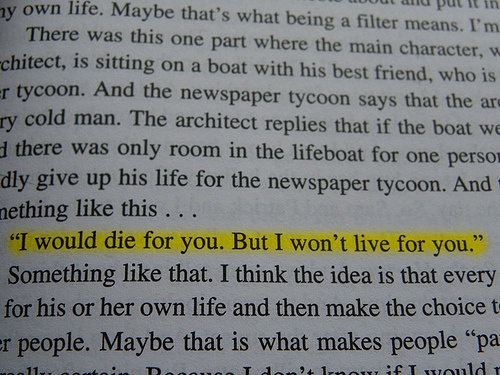
from “the perks of being a wallflower”
Jane Austen’s Pride and Prejudice turns 200 this year. Paula Byrne writes about how, even though most readers don’t notice the historical context, it was influenced by the events of its time.
This gallery of classic literary fiction re-packaged as chick lit is appalling.
The classic “Choose Your Own Adventure” novels are being adapted as iPad apps. To find out what happens next, go to page 87. To examine the knife behind the treasure chest, go to page 91. Did anyone else consistently get themselves killed after about five minutes in these books or was it just me.
Negative Amazon reviews on newly released books can, en masse, ruin them.
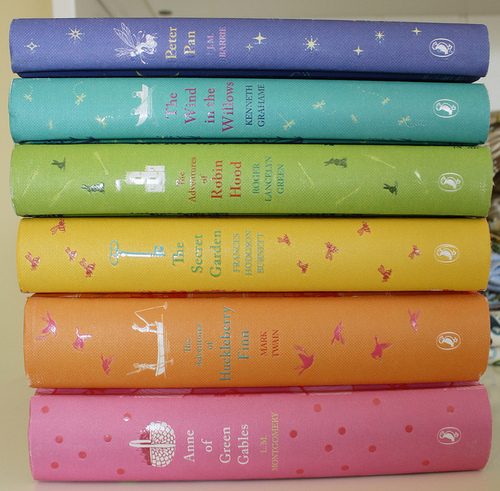
photo by sugar stiches – via flickr.com/photos/sugar_stitches
You can buy ebooks from your favorite independent bookstore if you have a Kobo device (or app). And you should: prices for bestselling ebooks are at an all-time low.
A new documentary, The Great Book Robbery, details the looting of about 70,000 books from private libraries in Palestine during the war in 1948.
The Bell Jar has gotten a hideous makeover.
A new library in San Antonio, Texas, will open this fall without any physical books. Instead, it will have 50 computer terminals, on-site tablets and laptops, and pre-loaded ereaders for patrons to take home. According to the local judge, the library will serve a community that may not have access to computers at home and is cost effective because it will open in an existing building. Critics, however, say that due to a limited selection and a general lack of tech-savviness, the effort is “premature.” Meanwhile, university libraries in Nova Scotia are testing ebook sharing.
The “10 Fictional Libraries I’d Love To Visit” include the libraries at Sunnydale High School, the Jedi Temple, Hogwarts and the Unseen University.
Trop has an interview with poet and writer Eileen Myles about directness, the idea of badass and language:
“I’m really obsessed with the language of my poems being language that is in the world. I’m not having to give birth to new language—I’m using the language that is already there. I’m putting it next to language that might be surprising. Like when you look at a film and see how a film is edited—there are visual puns and auditory puns and there’s repetition and a pan and it’s just an inventory. There are so many different devices which we use in poetry and writing too. I’m interested in recombining different kinds of moments that can be grasped in language and putting them next to each other.”
Sista Outsider posted a critique of Lillian Faderman’s Odd Girls and Twilight Lovers: A History of Lesbian Life in Twentieth Century America that deconstructs Faderman’s apologism for racist behavior by white lesbians in the 1960s, 70s and 80s.
At the Lesbrary, Kathleen Wheeler reviewed Flowers from Iraq, by Sunny Alexander, which she called “riveting, heartbreaking, uplifting and cathartic.” Jill Guccini reviewed My Awesome Place, a posthumous collection of autobiographical essays by Cheryl Burke.
The Lesbrary also has an extensive collection of queer (primarily lesbian, but with some bi and trans* representation) books and literature. Really extensive. There are lists about identities, lists about genres and content. Lesbian knights in fiction, lesbians and cats and lesbian sleuths all have their own categories.
At Lambda Literary, Victoria Brownworth reviewed The Retribution and The Vanishing Point, two crime novels by Val McDermid. Cathy Camper reviewed Transposes, a graphic novel by Dylan Edwards that focuses on six queer transmen. Sarah Rauch reviewed Licking the Spoon, a memoir by Candace Walsh.
Don’t forget to check out all the awesome book-related things we published recently: Hansen wrote about hollowing out books and book necklaces. Malaika wrote about how science says reading classic literature makes you smarter. Fonseca reviewed Tip of the Iceberg, by Laura Szumowski. Rose wrote about Utah removing In Our Mothers’ House, by Patricia Polacco, from its banned books list. Cara wrote about the word “drag.”
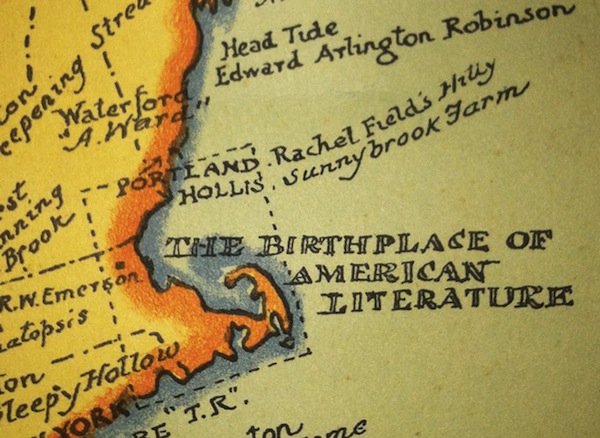
via brainpickings.com
Books And Events To Watch Out For:
January 23, St. Paul, Minnesota: Catherine Lundoff will read from Silver Moon, her novel about menopause, lycanthropy and coming out. SubText: A Bookstore (165 Western Ave N.), 7 p.m. CST.
January 24, San Francisco: Six poets – Sirama Bajo, Christina Fisher, Carrie Hunter, Ava Koohbor, Aide Rodriquez Zamudio and Sunnylyn Thibodeaux – will present their work. Meridian Gallery (535 Powell St.), 7:00 to 9:00 p.m.
Now to January 31, New York: Strange Loop Gallery is collaborating with the Bureau of General Services, Queer Division, to create a pop-up bookstore and event space at Strange Loop Gallery (27 Orchard St.).
February 5, Athens, Ohio: Poet Andrea Gibson will be at Baker Center Theater (1 Park Place) at 6:45 p.m. She’ll also be running a workshop February 6 at the Ohio University Women’s Centre (Baker 403) at noon. Call 740-593-1000 for info. She will be in lots of other places this spring, too.
Know of a queer event with literary merit? Send it to us!
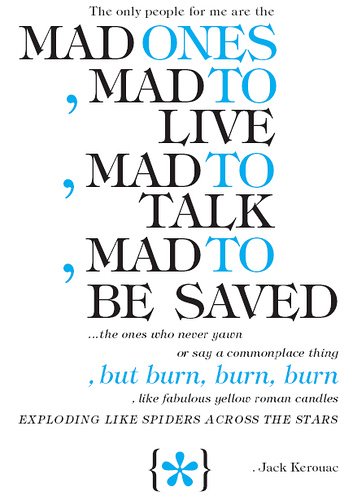
What We’ve Been Reading:
Riese:
I’ve already eaten Lorrie Moore, Mary Gaitskill, Grace Paley and A.M Homes, so now it’s time to eat Amy Bloom. By eat I mean “read every single short story book she’s ever written.” I read/loved Come to Me and read/adored A Blind Man Could See How Much I Love You (what a fantastic fucking title) and now I’m like 75% of the way through Where the God Of Love Hangs Out. Reading Amy Bloom makes me want to write, which means it’s the best kind of thing to read. The format of this book is interesting and I really love it — it’s like divided into sections, and each section contains 2-5 short stories about the same cast of characters, from different perspectives about different times in their lives. I love it.
Carolyn:
I read The Vanishers, by Heidi Julavits, a literary paranormal mystery about family and psychic damage. I still get excited whenever I find a non-queer- or -feminist-branded book that passes the Bechdel test as hard as this one does, which made me more forgiving of some of its quirks (like slow spots and more face changes than Mission Impossible II). I also read Loitering With Intent, by Muriel Spark. The next book I am reading is Harriet the Spy because my queer feminist unicorn bi-city book club is reading it.
What are you reading?
My Top 8 Favorite Authors: Riese, Editor-in-Chief
In My Top 8, various members of Team Autostraddle tell you which writers made us who we are today and invite you to like all the same things we like. Today, Editor-in-Chief Riese shares feelings about Lorrie Moore and Mary Gaitskill and some other people.
What makes a “favorite author”? This was hard to narrow down, but eventually I decided on the following: my top eight authors would be authors who changed who I was as a writer. I also decided to focus exclusively on fiction & non-fiction writers rather than on those who are primarily poets — but if you want to read about my favorite poets, I’ve written extensively in the past about my love for Stephen Dunn, as well as my love for Rilke and Jack Spicer and Raymond Carver. Stephen Dunn is without a doubt one of my favorite writers of all time.
The other hard part was all the authors I love on account of two or three books I’ve read, which doesn’t seem like enough to qualify the author as my favorite — this includes authors who’ve only written one or two books (Miranda July, Colleen Curran, Curtis Sittenfeld) and authors who’ve written so many books that the fact that I’ve only read two or three of their books still leaves me unqualified to declare them a favorite (Amy Bloom, Michael Cunningham, Rick Moody). Eventually I settled on the following eight humans. This was very difficult. I may have incldued nine.
MY TOP 8
Lorrie Moore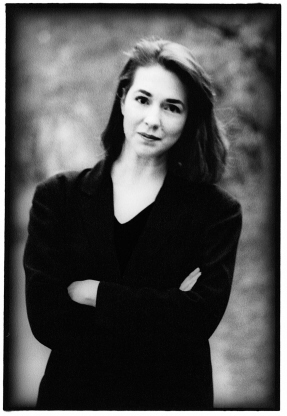
Books Read: Self -Help (1985), Like Life (1990), Birds of America (1998), Anagrams (1986), Who Will Run The Frog Hospital? (1994), about half of A Gate At The Stairs (2009)
Books Yet To Read: the rest of A Gate At the Stairs
Favorite: Birds of America (1994)
We read Lorrie Moore’s How To Be A Writer — first try to be something, anything else — on my first day of workshop in 1998. The writing teachers at Interlochen approached us from a strange in-between place representing two warring desires: they wanted to foster our talents but also to ensure our career expectations remained low.
First try to be something, anything else.
But in confidence a teacher told me I should definitely try to be a writer and also that I should read more Lorrie Moore. I didn’t do anything about either of those ideas for a while.
First, try to be something, anything, else. A movie star/astronaut. A movie star
missionary. A movie star/kindergarten teacher. President of the World. Fail miserably.
Three years later, the most talented and most insufferable member of my upper-level undergraduate fiction workshop asked if I’d read Lorrie Moore and said my writing reminded him of hers. “I get that a lot,” I told him, inaccurately. A few weeks later I left my stupid boyfriend and moved back to campus with friends and bought Lorrie Moore’s Self-Help. There was a story about me and my stupid boyfriend in it, called How, which seemed serendipitous.
Pace around in the kitchen and say that you are unhappy.
But I love you, he will say in his soft, bewildered way, stirring the spaghetti sauce but not you, staring into the pan as if waiting for something, a magic fish, to rise from it and say: That is always enough, why is that not always enough?
Then I was sleeping with a 19-year-old who worked at my gym and was dating a high school swimming star who went out of town a lot for meets. Lorrie Moore wrote a story for us, too, called How To Be An Other Woman.
It is like having a book out from the library.
It is like constantly having a book out from the library.
I finished Self-Help the night the 19-year-old promised he’d break up with the swimmer and I’d accidentally taken a Ritalin instead of an Elavil before bed. I wrote a story called How to Be Normal, about the relationship I’d recently left, because I couldn’t read Lorrie Moore without starting to think like a second-rate Lorrie Moore. My teacher said it reminded him of Lorrie Moore. This time I knew what he was talking about.
My Mom owned Moore’s first novel, Who Will Run The Frog Hospital?, so I snatched that when packing to leave Michigan for New York and read it in July 2004, mostly on the subway, probably. That’s a standalone book, I think, you can read it and like it but not really know Lorrie Moore like you would if you’d read her short stories.
Then I read Self Help again, that August, when I’d just started dating an about-to-get-divorced Republican and couldn’t get a job and when I did get a job, I’d quickly lose that job. My debt mounted. I was outside of things, but paying very close attention.
That had been in Agnes’s mishmash decade, after college. She had lived improvisationally then, getting this job or that, in restaurants or offices, taking a class or two, not thinking too far ahead, negotiating the precariousness and subway flus and scrimping for an occasional manicure or a play. Such a life required much exaggerated self-esteem. It engaged gross quantities of hope and despair and set them wildly side by side, like a Third World country of the heart.
Lorrie Moore’s protagonists are always a little bit outside, always watching, always finding themselves with partners or jobs or homes or lives that don’t fit, wondering why they’ve made such egregiously unwise choices. Their friends are smart and clever, good with puns and wordplay. Like my friends. Humor is relied upon when tragedy strikes, even when nobody else is laughing. Lorrie Moore’s protagonists tell jokes nobody else gets.
The Mother does not know how to be one of these other mothers, with their blond hair and sweatpants and sneakers and determined pleasantness. She does not think that she can be anything similar. She does not feel remotely like them. She knows, for instance, too many people in Greenwich Village. She mail-orders oysters and tiramisu from a shop in SoHo. She is close friends with four actual homosexuals. Where do these women get their sweatpants? She will find out.
In December I read Like Life and loved it so much. Lost without a constant drip of Lorrie Moore, I immediately picked up Birds of America and read it the month I dumped my last boyfriend ever, the Republican, in January of 2005. It was a transformational time. Like Life and Birds of America were fuller than Self-Help, with more characters, and I loved them both and passed them on to similarly impressed friends.
In March of 2005 I read her second novel, Anagrams. I liked all the sentences and words but not the plot/story. It read like a short story writer rebelling against her contractual obligation to write a novel. But it had some of her best lines ever in there. Like when she sleeps with her friend Gerard, which she defines as “spastic and looped, doomed for failure, like two senile inventors in an upstairs room, lonely as spoons,” she explains her desire to be with him (or their desire to be with each other, really):
Life is sad, I thought. Here is someone.
Isn’t that perfect?
In 2008 I read Anagrams again, because Lorrie Moore hadn’t written a new book yet, so what was I supposed to do? I loved it this time. Maybe I was smarter suddenly. When I picked up A Gate At The Stairs last year, it was like returning to an old friend, like returning to my most mish-mashed self. The mystery is all.
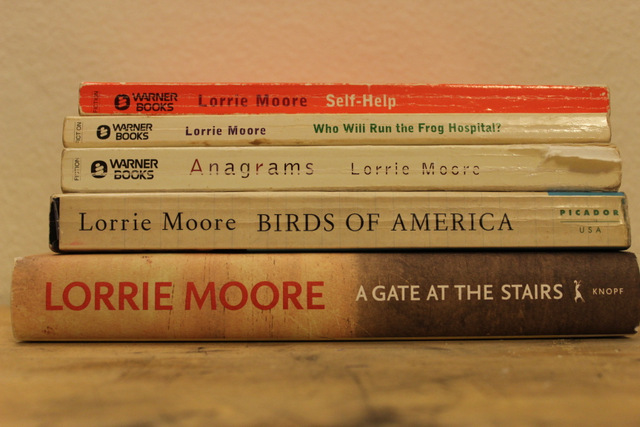
my lorrie moore books
Lorrie Moore taught me how to write my own brain.
Mary Gaitskill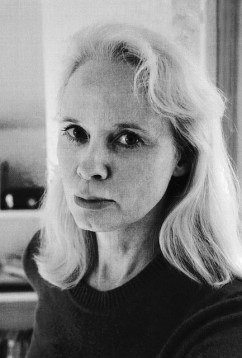
Books Read: Don’t Cry (2009), Veronica (2005), Because They Wanted To (1997), Two Girls Fat & Thin (1991), Bad Behavior (1988)
Books Yet To Read: n/a
Favorite: Bad Behavior (1988)
I was writing a story about sex work for nerve.com and my editor asked if I’d ever read Mary Gaitskill. I had not. He recommended Bad Behavior, her short story book best known for the story “Secretary,” which had recently been made into a movie starring Maggie Gyllenhall. He was just in time: I’d just ran out of Lorrie Moore books to read.
But Gaitskill was dark, like fuck-you-in-an-alley dark, like piss-and-shit dark, like hermetic-office-drones dark. People who’ve given up on happiness but haven’t stopped wanting everything else, especially love or music or desire or revenge.
This was the kind of writer I wanted to be. These were the people I wanted to write about, the feelings I wanted to excavate.
I ate Bad Behavior in a few days and wrote, wrote, wrote. Her novel Veronica, about a model named Allison and New York City and drugs and sex and Allison’s HIV-positive friend Veronica, came out a month or two later and would eventually win lots of awards. I bought it brand-new in hardcover, something I’d never done before. I’ve read it four times since.
I wanted something to happen, but I didn’t know what. I didn’t have the ambition to be an important person or a star. My ambition was to live like music. I didn’t think of it that way, but that’s what I wanted; it seemed like that’s what everybody wanted. I remember people walking around like they were wrapped in an invisible gauze of songs, one running into the next — songs about sex, pain, injustice, love, triumph, each bursting with ideal characters that popped out and fell back as the person walked down the street or rode the bus.
I read Because They Wanted To, another short story collection, next, and loved it, too. Two Girls Fat & Thin was harder to get through, but is by far her most ambitious production and contains, I think, some of her best physical descriptions, of which there are so many I had to just close my eyes and flip to a page to find one for you, because deciding was too hard:
The new school was filled with crowds of strangers with ratted nests of bleached hair, makeup, and breasts. The girls wore pointy boots and stood with their legs apart and their hips thrust out; the boys wore cleats and had faces like knives.
Her characters exist on the peripheries of various sexual subcultures, are plagued by self-destruction, are distracted by the seemingly banal intrusions of ordinary popular culture, are sometimes beautiful and often cruel or damaged. They have complicated and torrid relationships with the regular working world. She speaks explicitly no matter what the vocabulary, she is hard and gross and honest about the deepest most deviant but also earnest and beautiful pits of humanity.
Plus there’s all these other ways she speaks to me: her stories are often set in Ann Arbor, where I grew up, or New York, where I used to live, or San Francisco, where I live now. She’s bisexual and at least a third of her characters are, in some way, queer.
I’ve read everything she’s ever written. When Don’t Cry, another story collection, came out three years ago, I promptly cried — out of joy.
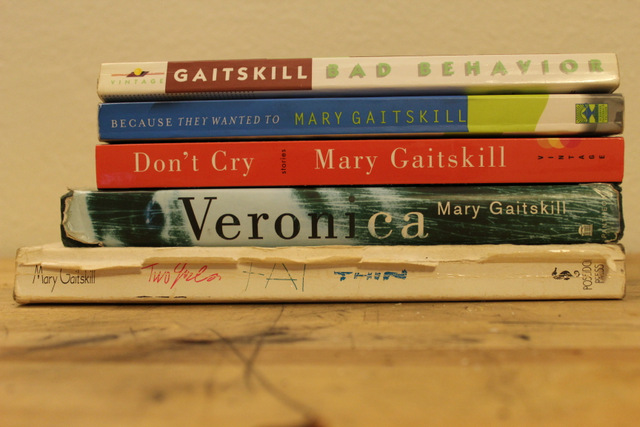
my mary gaitskill books
Mary Gaitskill taught me how to write about sex and beauty and ugliness and New York City.
Raymond Carver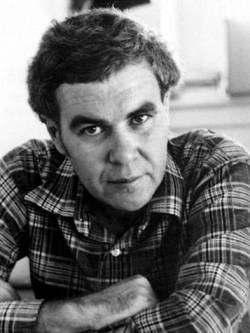
Books Read: Where I’m Calling From (1998) [contains stories from Will You Please Be Quiet Please? (1976), Furious Seasons (1977), What We Talk About When We Talk About Love (1981) and Cathedral (1983)] Where Water Comes Together With Other Water (1985), A New Path To The Waterfall (1989), All Of Us: The Collected Poems (1996)
Books Yet To Read: Elephant (1988)
Favorite: What We Talk About When We Talk About Love (1981)
Raymond Carver is a very famous short story writer, maybe even the best short story writer of the second half of the 20th century. One of them, at least. It’s like he invented this style. Minimalism. Some titles are What We Talk About When We Talk About Love and Will You Please Be Quiet Please? Maybe you read Cathedral in class –Norton loves Cathedral — the one about the blind guy, and tracing?
Raymond Carver was who and what I admired when I first got to Interlochen. I would read a Raymond Carver story and then write my own story. His protagonists were sad and their wives were disappointed. I write too many words all the time but Raymond Carver doesn’t need so many words. I read a biography about his life. He drank a lot and was in love with Tess Gallagher and taught at Iowa and married Maryann.
Raymond Carver was drunk for most of the time. Until the last five years. He had lung cancer. He gave up drinking. He had his “second life,” but he was still brilliant and doomed.
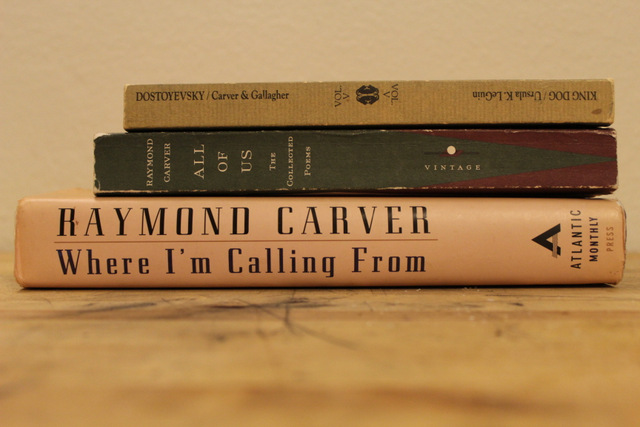
these are some of my raymond carver books
Raymond Carver taught me how to say more things with less words.
A.M. Homes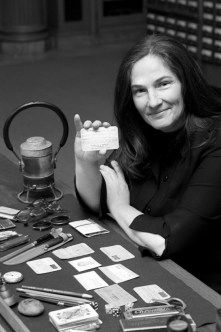
Books Read: Music For Torching (1999), This Book Will Save Your Life (2006), The Safety of Objects (1990), Things You Should Know (2002), The Mistress’s Daughter (2007)
Books I Haven’t Read: Jack (1989), In A Country of Mothers (1993), The End of Alice (1996), May We Be Forgiven (2012)
Favorite: The Safety of Objects (1990)
I came to A.M. Homes backwards: I saw the movie, The Safety Of Objects, and in the summer of 2004 I saw the book at The Strand and so I bought it and wow, it was so good.
Homes deals almost exclusively with the dark side of Suburbia — parents and siblings and lovers and classmates with secrets, thrashing around inside the plastic bag of their lives, yearning for something more but too civilized to get it with anything resembling finesse. I ate Things You Should Know in a day. I didn’t like This Book Will Save Your Life at first but then I loved it. I listened to The Mistress’s Daughter on audiobook, and it wasn’t everything I hoped it’d be but I liked knowing more about her.
A.M. Homes is bisexual, by the way, and wrote some L Word episodes back when the show was still good.
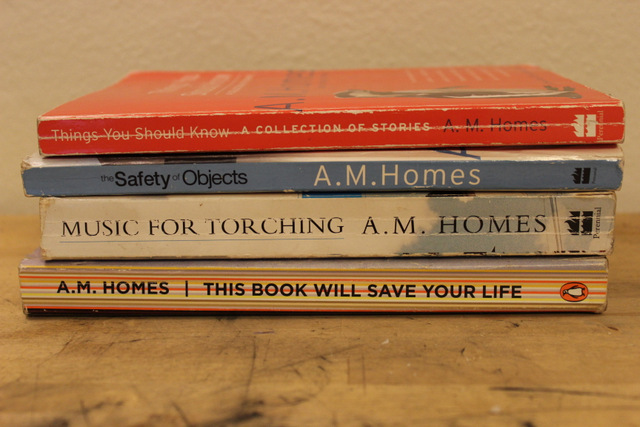
my a.m. homes books
A.M. Homes taught me how to write sympathetically about privileged people.
JONATHAN FRANZEN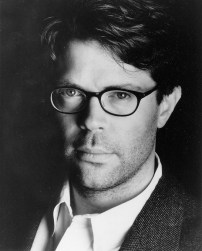
Books Read: The Corrections (2001), How To Be Alone (2002), The Discomfort Zone (2006), Freedom (2010)
Books Yet To Read: Strong Motion (1992), Farther Away (2012)
Favorite: Freedom (2010)
The Corrections came out in paperback in 2002, and it had been lauded as a groundbreaking return to the Modern Novel, a sprawling beast of a book grounded in the Midwest and starring a family with three adult children and also featuring everybody they’d ever known, ever. It was about everything, though.
My boyfriend was going home over winter break and I was staying behind to take care of the dog and figure out how to leave him. I hadn’t been very good at reading since we’d started dating — he didn’t read, not ever, except for school — and between semesters, with him back home and his physical presence and overall negative energy removed from our apartment, I sat down on the couch and opened a novel — The Corrections — and read it and kept on reading it. I just read it and read it and read it and it reminded me why I wanted to write and why I couldn’t be with anybody who wasn’t desperately curious, as I was, about why people do the things they do and why the world is the way it is.
How To Be Alone I read some years later, and loved it too. The Discomfort Zone I was fairly “meh” about, I’m not sure if I read the whole thing or just a little bit. I think I got it on audiobook, which was probably a mistake. Then Freedom came out and was even better than The Corrections. My girlfriend read it after I did and she loved it too. Jonathan Franzen can eliminate all useless words and still have a million words. He can weave a gigantic story. He’s one of those writers you want to read a lot of “How I Write” things about, and copy them.
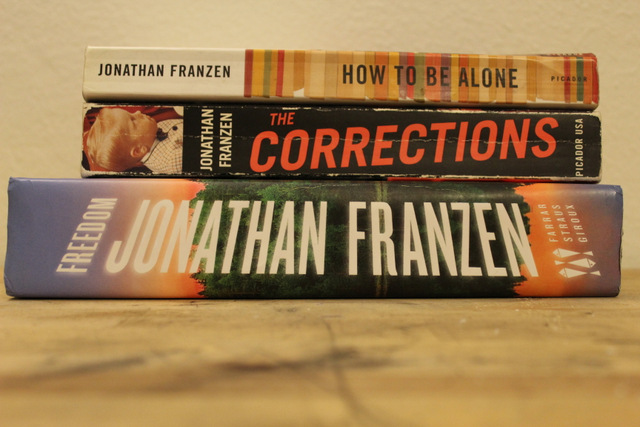
my jonathan franzen books
Jonathan Franzen taught me how to write an important novel. One day I’ll do something about that knowledge.
Pam Houston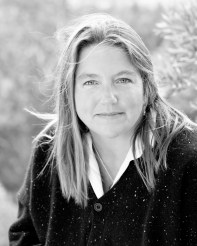
Books Read: Cowboys Are My Weakness (1993), Waltzing The Cat (1999), A Little More About Me (2000)
Books I Haven’t Read: Sight Hound (2006), Contents May Have Shifted (2012)
Favorite: Cowboys Are My Weakness (1993)
In the early ’90s, I think, Pam Houston came to Interlochen to do a reading, and while she was there she went fishing with three of my writing teachers, one of whom would become a kind of surrogate father for me while I was in school there. In “In The Company of Fisherman” she described driving with my teachers and their relationship to the Michigan landscape. She nailed it:
The whole conversation is less like speaking really and more like singing, a song they’ve spent years and years of these cold spring nights together learning, nights anybody anywhere else in the world would call winter, nights filled with an expectation that can only be called boyish and shadowed by too much of the grown-up knowledge that can ultimately defeat men.
Pam Houston is an outdoorswoman. I’m not, really, not at all, but Pam Houston makes me wish I was. The summer after graduating high school I drove up north to visit aforementioned writing teacher and his daughter, Jamie, and at some point I snagged Houston’s famous short story book, Cowboys Are My Weakness, from Jamie’s shelf. I was just gonna flip through it while Jamie was in the shower, but I got sucked in. For two years I’d been studying with those men she wrote about, learning about poetry in a distinctly Michigan way, reading men like Jim Harrison and Gary Snyder talk about the woods, and here was a woman writing about cold-weather camping, big dogs, Alaska, Montana, getting caught in the rapids and cowboys. I proceeded then to another short story book, Waltzing the Cat, and a book of personal essays called A Little More About Me.
I wrote a little essay called “I’d Like To Have a Lover Like Yours” and dedicated it to Pam Houston. It was the first personal essay I ever published.
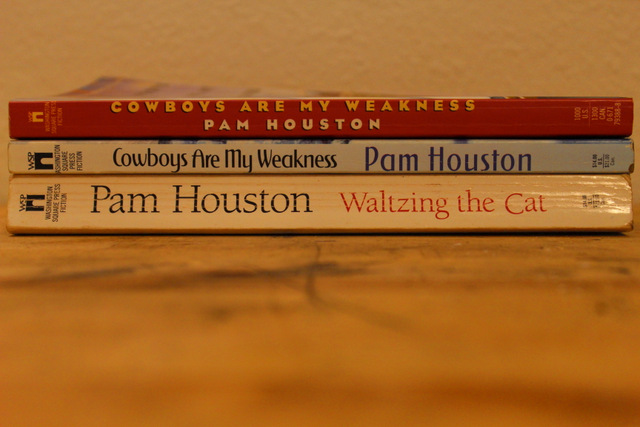
my pam houston books (yes i have two copies of cowboys are my weakness”)
Pam Houston taught me how to write about the woods.
Joan Didion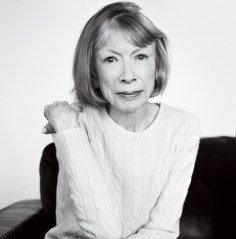
Books Read: The Year of Magical Thinking (2006), Play It As It Lays (2005), about half of We Tell Ourselves Stories In Order To Live (2006), which contains her collective work from seven books of non-fiction: The White Album (1979), Slouching Towards Bethlehem (1968), Miami (1987), After Henry (1992), Where I Was From (2003), Political Fictions (2001) and Salvador (1983).
Books I Haven’t Read Yet: Blue Nights (2012), A Book Of Common Prayer (1997), The Last Thing He Wanted (1996) and the rest of We Tell Ourselves Stories In Order To Live (2006).
Favorite: The Year of Magical Thinking (2006)
I don’t know how to talk about Joan Didion. She’s this tiny woman and this great big thing. I started with The Year of Magical Thinking in the beginning of 2006, because it won a lot of awards and I’d liked the article about it I read in New York Magazine. It said all the things about grief, and death when it comes suddenly. She said all the words I wish I knew how to say. I love the essay Goodbye To All That, of course, it’s possibly my favorite essay of all time. Since then I’ve just been reading all her essays.
I’m not sure how I felt about Play It As It Lays, the only novel of hers I’ve read, but I want to read all the true things she’ll ever read, and so luckily I have a big book enabling me to do that. There’s so much that I can do this for the rest of my life, I think. There will always be more Joan Didion to read.
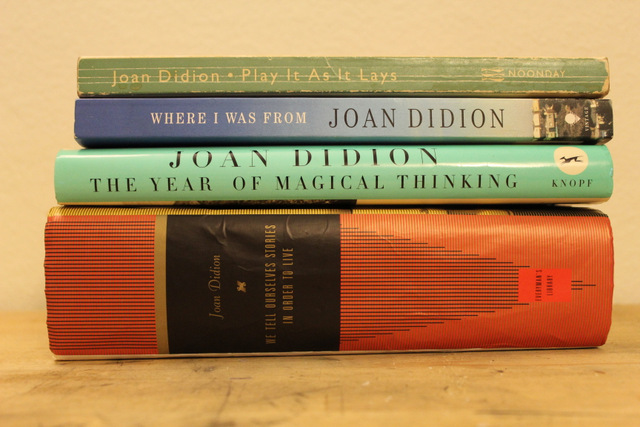
my joan didion books
Joan Didion taught me how to write about myself and the whole world at the same time, and also about place.
Dorothy Allison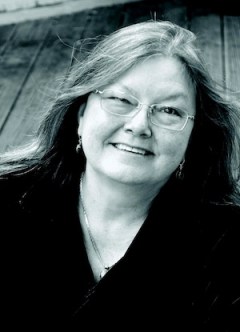
Books Read: Trash: Short Stories (1988), Bastard Out of Carolina (1992), Two Or Three Things I Know For Sure (1995)
Books I Haven’t Read: Skin: Talking About Sex, Class and Literature (1994), The Women Who Hate Me: Poems By Dorothy Allison (1983) and Cavedweller (1998)
Favorite: Two Or Three Things I Know For Sure (1995)
The first Dorothy Allison anything that I read was “River of Names” — we read it in class in high school — and it read like an actual river, like you’re just flowing from one idea to the next, past each quick tragic death of a cousin, in and out of the bed she shared with her new lover. The next time I found Dorothy Allison was eight years later when my then-roommate said Bastard Out of Carolina was her favorite book and I figured it was high time I check it out. Everybody should, it’s that good. Trash came next and was awesome. But I’ve never loved anything quite like I love Two Or Three Things I Know For Sure, one of the finest little books I’ve ever read ten times.
“I know the use of fiction in a world of hard truth, the way fiction can be a harder piece of truth. The story of what happened, or what did not happen but should have — that story can become a curtain drawn shut, a piece of insulation, a disguise, a razor, a tool that changes every time it us used and sometimes becomes something other than we intended. The story becomes the thing needed.”
If you get into lesbian feminist etc anthologies, you”ll come to appreciate Allison also for her generosity as an anthologist. I’ve read stories & essays like “Private Rituals” in Too Darn Hot: Writing About Sex Since Kinsey,””Conceptual Lesbianism” in Surface Tension: Love, Sex & Politics Between Lesbians & Straight Women (1996), an interview in Happy Endings: Lesbian Writers Talk About Their Lives And Work (1993), “Her Body, Mine and His” in Pomosexuals: Challenging Assumptions About Gender & Sexuality (1997), “A Question of Class” in Sisters, Sexperts & Queers (1993) and “Her Thighs” in The Persistent Desire: A Femme-Butch Reader (1991). That’s a lot!
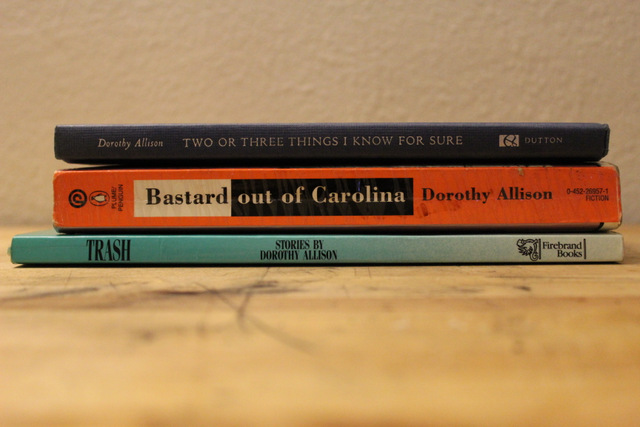
my dorothy allison books
Dorothy Allison taught me how to write about the truth.
Eileen Myles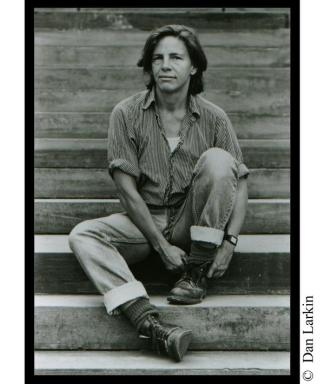
Books Read: Cool For You (2000), Sorry, Tree (2007), Not Me (1991), The New Fuck You (1995), Inferno (2010)
Books I Haven’t Read: Chelsea Girls (1994), Maxfield Parish: Early and New Poems (1995), School of Fish (1996), The Importance Of Being Iceland (2009), Snowflake/different streets (2012)
My then-girlfriend was pretty surprised when, halfway through “Lost In Canada: A 3,600 Word Advertisement For My Missing Notebook” in The Believer, I texted to ask if she’d ever heard of Eileen Myles. Why hadn’t I heard of Eileen Myles? She wanted to know. Sometimes the most important people fall through the cracks, I guess.
Along with other Myles fanatics, I’ve said so much about her on this website (and elsewhere) that I’ll just have to keep this one brief but you know, wow. Eileen Myles. I finally saw her in person a month or six ago at the library in San Francisco. She was reading in a room in the basement that had really terrible fluorescent lighting. Michelle Tea hosted. There she was, Eileen Myles! My girlfriend asked if I wanted to go get a book signed, or whatever, but of course not. I’d be too nervous.
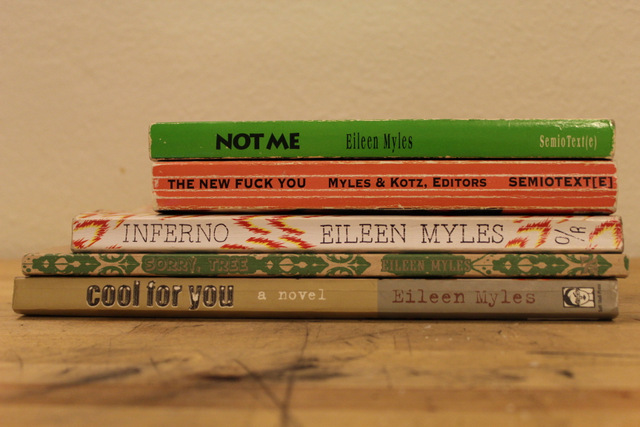
my eileen myles books
Eileen Myles taught me how to write like I think, and to own it.
…it seems to me that life is just a series of long, jagged peaks of joy — accompanied by a brooding and enduring sense of a loss — of powers, of love, of favorite shirts, of moments and opportunities and notebooks that together constitute the passage of one human, me, bobbing floating skipping like a flat stone down the river of life. It’s massive, this sense of things; it’s anonymous yet it feels personal from “here.”
– Eileen Myles, “Lost in Canada: a 3,600 Word Advertisement For My Missing Notebook.”
Idol Worship: Ten(ish) Questions with Eileen Myles
Header by Rory Midhani

Welcome to Idol Worship, a biweekly devotional to whoever the fuck I’m into. This is a no-holds-barred lovefest for my favorite celebrities, rebels and biker chicks; women qualify for this column simply by changing my life and/or moving me deeply. This week I got ten-ish questions answered by Eileen Myles but really, we mostly shot the shit and then I drooled about her.
I know, you guys. You get it. I like Eileen Myles.
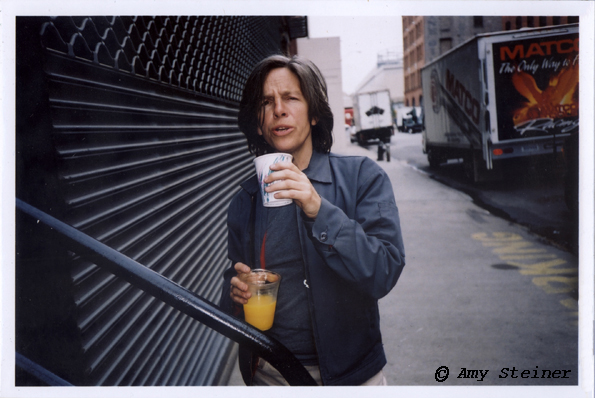
eileen myles is the ultimate lesbian icon, is what i’m saying
Eileen Myles was born and raised up North in Massachusetts, attending Catholic school until she studied as an undergraduate at UMass Boston. She made it to New York City in 1974, where she began to attend workshops at St. Mark’s Poetry Project. Once she escaped suburbia, Myles began to do incredible work. (I assume she did this while in suburbia, too, but it’s a lot better to imagine her in her apartment smoking cigarettes.) I sort of like that she stayed home for so long because I often feel like I stayed home too long. Eileen Myles still got out and never looked back.
And I’ll admit, for the sake of full disclosure, that the reason I’m so head-over-heels with this woman’s words is really mostly because whenever I’ve really needed someone, Skies was that someone. And I thought, if a book can be someone, then Eileen Myles must really be someone, you know? I tend to fall head-over-heels for things, though -i.e., this entire column, but this has always been different. Nobody else, to be honest, even comes close.
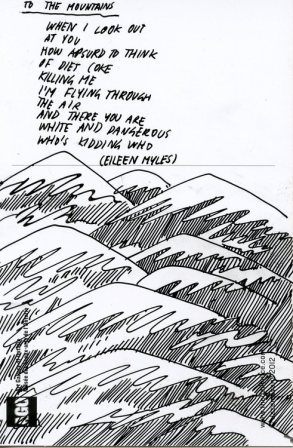
After I read Skies out loud to my friends one drunken night (and afterward kept it on my bedside table for the rest of the year), I realized I’d stumbled upon something extraordinary, someone with a real art inside her. I suddenly felt a lot less alone. I began to read even more and each new book or poem would present me with the once-in-a-lifetime opportunity to be understood by someone I was kind of in awe of, to feel alike in my brain and my heart with someone writing the words down on a page I couldn’t even stop staring at for one minute. Even starkly in the first person, Myles often finds ways to verbalize my spirit better than I can. She’s got a grasp on herself that shows through in her work, a desire to understand herself and rationalize her world and that makes me feel less alone in my own constant need to do the same. She has this way of being that implies that she’s got it all together but she’s also totally trying to share so much of herself with everyone, even the not-so-bright and the hard parts and it’s amazing and brave and very true. It’s sincere and it’s bold and you admire the person doing it, the person living out these long stretches of highway and years of self-actualization and then you realize you understood the whole time how she felt. That somewhere in there was you. I felt close to her in my heartache, in my good luck, in my Indian Summers and still every day that I’m stuck in the middle of my twenties.
I actually met Eileen this past March at American University, while I was still a young’n who studied and stuff, and it was weird, because I’d kept her books in all my suitcases in every trip I’d ever gone on for years and I’d underlined some of her poem titles multiple times and even though 2012 was not my year, I did get to meet Eileen Myles. I was so downright impressed by it all, to be honest, by how the words I’d been underlining sounded just like Eileen in real life. I was so embarrassed by how many books I had brought with me that I didn’t even ask her to them all. But I made sure she signed Skies.
Eileen makes for the perfect lesbian icon: gritty, gravelly, and sincere, she’s literally just a total and complete dreamboat. And her work just gets better, better, and better. She’s written everything – poems, books, short stories, libretto, plays. She’s even written articles, getting smart without pause and kicking everyone’s ass. The woman has published 18 books, for God’s sake. She’s edited anthologies and participated in various projects. I have vowed to read every single thing. And I’ve gotten pretty far, if I say so myself. Some selected best hits for you include Inferno (which we were obsessed with for a good while), Skies, Snowflake / different streets (which I reviewed), Cool for You, and Sorry, Tree. Myles edited The New Fuck You, a standout anthology of lesbo writing that’s stood the test of time in my own heart.
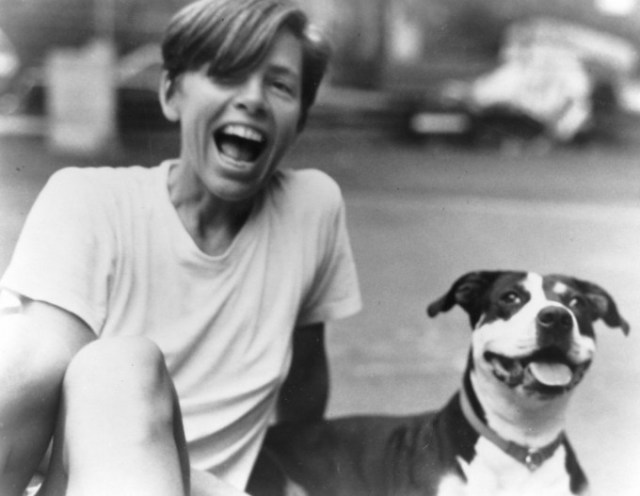
some things never change, y’all – eileen myles and dogs will never stop being amazing, for example
Myles is still in New York – living as a writer, in a relationship with Leopoldine Core, and still has so much to say. It’s like all of the good work and hard words she put together for over thirty years have only made her brain even better, her passion even greater, her skill no longer questioned or proving anything. Bust magazine called her a “rock star” and I call her “my ultimate inspiration” and the entire world calls her “someone with a way with words.” She’s been celebrated, nominated, and written about. She’s been a trailblazer, a romantic, and a wreck. And I love her for it.
(And once you’re done shopping online for her books and assorted works, you can get ’em delivered and then carry it all around in the badass Eileen Myles tote from OR books, of course.)
It seems appropriate to start “Idol Worship” with an Eileen Myles Q&A; nay, it seems inappropriate not to. Really I am just trying to get to know her a little more, in any way I can, whether it’s scratching at the meaning from her poetry or swinging my feet at her readings. So the other night I asked her ten questions. Well, ten-ish.
Ten(ish) Questions with Eileen Myles
Hi, Eileen!
Hi, C!
When you read at AU I remember I started wondering how poets select the poems they’ll read. You’ve been writing for a super long time. (It’s been great the whole time.) Do you ever read your old work?
Interestingly I’m part of a small community of people who are typing up Chelsea Girls for republication. It’s mind boggling. I NEED to re-read everything in prose I’ve written because to some extent I’ve forgotten what I’ve written about or how I’ve done it.
What are you working on since you got your Guggenheim Fellowship? Also, congratulations a million times.
I’ve been obsessively working on an essay about being on a homeless retreat for four days last fall. And I’m finishing my selected poems too. After the New Year’s it’s all Afterglow which is my fantastic dog memoir which the Guggenheim is supporting.
Can you tell me what it’s like when you write? Is there something you listen to or a specific notebook you use or a special time of day it usually is when you write? Where do you write?
All different. I began the homeless essay right here on my computer. But I dropped my computer the week before [Superstorm] Sandy and it was in the shop for a long time, several weeks. I borrowed friends’ computers, my girlfriend’s. But I devolved to one of my favorite methods which is writing longhand in a blue book. You know those exam booklets. I find the size perfect. Also I have a fat fetishived pencil that I’ve actually written about in Snowflake – it’s very gradeschool and I like to write in blue book with that and pencil sharpener close by my side. I love the point, I love losing my edge. The pencil is like thinking. Recently I wrote a poem on the notebook on my iPhone on the subway platform. I like to move around.
Coffee or tea?
Both, but coffee as a religion. Tea is maintenance.
How does a writer go on vacation? I am asking this mostly because I don’t know if I’ll ever be able to stop pitching articles ever, even when I’m in the middle of nowhere. “Can I write about being in the middle of nowhere,” you know? Do you ever go long periods or even short periods without writing?
Sure but not purposely and probably not at all. I don’t consider myself writing when I’m writing for hire or just putting notes in a notebook. I don’t think I ever stop though there’s an anxiety when I’m not IN a project of my own making and even if I’m not working on the RIGHT thing. I make myself crazy and usually come around to realizing I’m working and I’m working well.
When was the last time you went back to Boston?
I read at UMass Boston in October where I went to college.
What was it like?
It was heaven. I mean it meant so much to “go home” even though it was not even at the campus I attended since the school has built its own campus since I graduated. But the institution (which was essentially a poet friend Fanny Howe who is teaching there now) inviting me was so weirdly moving. I’m a sentimental fool around home and Boston etc and I crave something from it. Some is the sound of the accents which are really going away. To some extent I sound like people’s parents and grandparents and the localisms are fleeting but I like being in that in whatever way. A poet friend Jason Roush is trying to set up a reading at the Arlington Public Library which I would kill to do.
My family doesn’t live in Boston proper anymore though my mom is in Holyoke in a senior center and I’m going there Thursday because I’m reading on Thursday night in Boston. I’m happy to go there a lot and need to live there for a year as much as I need to live in Ireland and/or Europe for a while in the future, maybe next year.
I’m currently reviewing Jeanne Thorton’s latest for an upcoming review, and I saw you really liked it, which I think might be why I requested to review it in the first place. What kind of stuff do you read when you aren’t writing?
Today Sheila Heti’s book and Pasternak’s I Remember, a literary memoir, and Bubbles, giant philosophical books by Peter Sloterdijk which I can’t recommend enough because it’s about everything inside and out and a revision of how we think about the spaces of the world and their interconnection in this mediated moment.
Do you still write yourself in for President? You should run again so I can.
I don’t. But it was an unparalleled writing experience to see that white space on the ballot and put in your own name. I’d advise anyone to try it and then think about what it means. To the extent that people joke about my campaign and about lesbians in general I think an enormous amount of repression is surrounding what a woman might want.
I often think about what my girlfriend said (which is on a napkin on my bulletin board over my desk) when she wondered “how palatable will women have to make themselves as artists in this depression.”
It’s a depression the size of the world and we fill it by thinking about it I believe.
Lez Liberty Lit #3: It Is So Quite New A Thing
by carolyn & riese
Books! They are really great. You just won’t believe how great they are. You may think that the Internet’s great, but that’s just peanuts compared to books. Welcome to the third edition of Lez Liberty Lit, our new column about literary shit that’s happening that you should probably care about. We’re aiming to put one of these together twice a month.
The name “Liberty Lit” was inspired by the short-lived literary journal produced by Angela Chase at Liberty High School in 1994.
Header by Rory Midhani

Literary Internet Place of the Week
Project Unicorn: A Lesbian YA Extravaganza! is a year-long project by authors Sarah Diemer and Jennifer Diemer to help correct lesbian underrepresentation in YA. Project Unicorn, which began in August, posts two original YA short stories a week. All of the stories have lesbian heroines. Recently, they posted “A History of Drowning” and “Dreaming Green.” You should read it for: online and free gay YA.
Lez Liberty Lit Links
At Rookie, Emma Dajska talks about written and visual records and why keeping a notebook is good for you.
Vogue did a big costume fashion shoot at Edith Wharton‘s estate to celebrate Edith Wharton and managed to include a whole shit-ton of male writers and not one lady-writer! Even Edith Wharton is played by a model, although contemporary male writers are the ones dressed as historical male writers for the shoot.
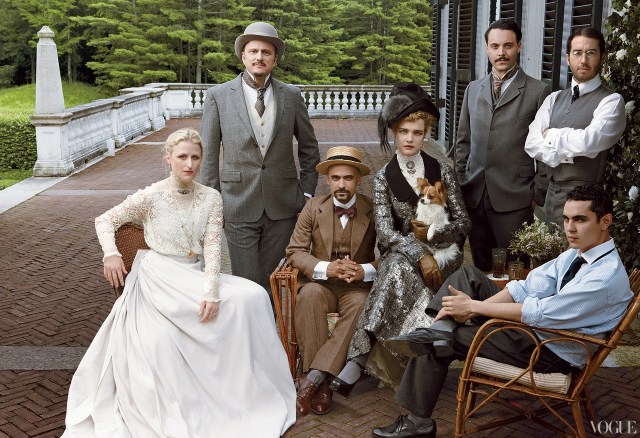
The VOGUE shoot
You brain likes Jane Austen because science says so.

by e.e. cummings
At Superworse, Sady Doyle writes about Anais Nin, lying in autobiography, and lady narcissism. You must read this.
Spoiler alert: the first edition covers of classic books are interesting. (Did you know Animal Farm was originally subtitled “A Fairy Story”?)
Talking Covers talks to the woman behind the epic Vintage Contemporaries series, Lorraine Louie, and Sloane Crosley talks about the cover for I Was Told There’d Be Cake.
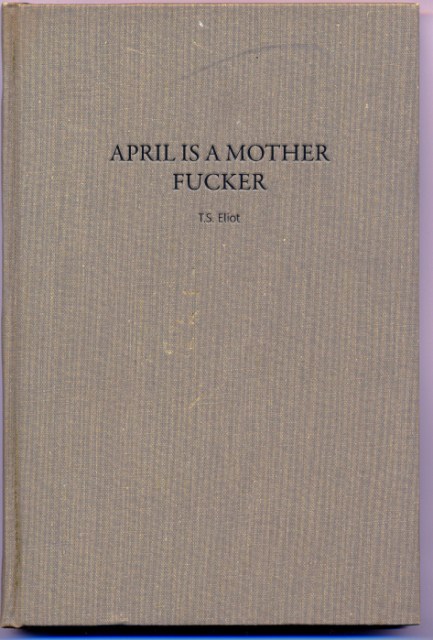
via fuckyeahbookarts.tumblr.com
Emily Books’ September book is Maidenhead, by Tamara Faith Berger. It’s selling it as: “It’s Spring Break in Key West and 16 year-old Myra is bored with her square parents and annoying sister, so she wanders away from them … into a world of sexual depravity,” which sounds good to me. Emily Books also celebrated its one-year anniversary yesterday.
Electric Literature, via Open Culture: single sentence animations visualize the short stories of contemporary writers — “The writer selects a favorite sentence from his or her work and the animator creates a short film in response,” like a recent bit from bisexual writer A.M. Homes‘ “Hello Everybody.” Also, at Electric Literature, a story by Mary Gaitskill!
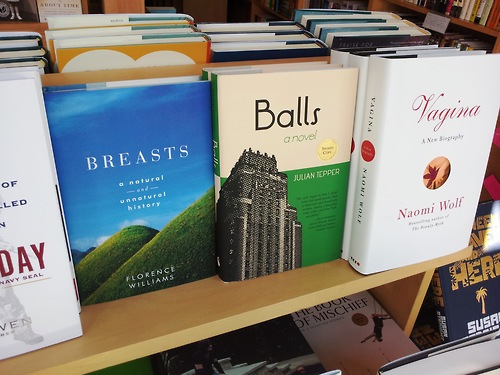
via wordbrooklyn.tumblr.com
Zadie Smith offers ten rules for writing, and the post we just linked you to includes links to other writers with other tips and rules for writing.
At The Lesbrary, Lindy Pratch reviewed Ivan E. Coyote‘s One in Every Crowd: “Gender nonconformists are teachers, whether they choose that role or not. Coyote’s storytelling has an educational element, no matter what age her audience happens to be. Best of all, she is genuinely warm and funny, whether on the page or in person.”
At the Mary Sue, Susana Polo discusses the power of women in fandoms, particularly in comics. She argues that women engage more, and that while there is no way to demographically quantify something like internet fandom, the more widely marketed something is, the better.
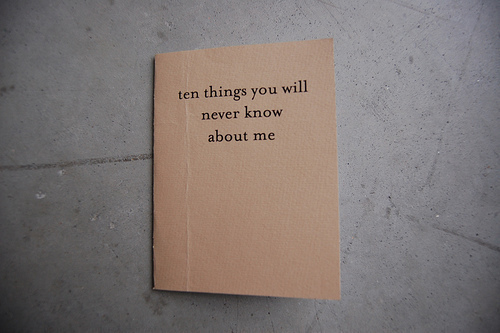
via fuckyeahbookarts.tumblr.com
This week at Lambda Literary, TT Jax asks Sassafras Lowrey, Morty Diamond, Elliott DeLine, Tom Léger, AJ Bryce and Ryka Aoki about cisgendered literature, identity-based content, and social justice.
Eileen Myles is in the new Sister Spit anthology, Sister Spit: Writing, Rants, and Reminiscence fron the Road. Her contribution, “February 13, 1982” is excerpted online. This is how it starts:
“Time passes. That’s for sure. It’s the nightmare of having what you want that I’m interested in today. I had a book party five years ago. It took place in New York where I live and it was the beginning of the end for me.
I’m a very different person today. Bill’s coming over to build shelves in the kitchen. Things have a slow progression, kind of a pleasant listiness. A big part of my list is the past. I went over to Rose’s to plan the book party. Power Mad Press, which was Barbara, was publishing my book. Barbara lived with Rose in a loft and that’s where we were going to have the party. Rose is an astrologer. She pointed to February 13th on her calendar. It’s got to be this date, she said. Absolutely. But why, I asked. A lot of things will converge for you on this date. Your Mars, a lot of your aspects . . . I don’t know how to explain it, but this is YOU. Maybe you don’t want your party to be such an intense experience. It could be a lot quieter. It depends on what you want. Rose was like a lawyer, or a salesman. You never knew if she was making this stuff up — if she really had her finger on the pulsation of the orbs and if she did, I mean, if she really had the power, was she on my side.”

via flickr.com/photos/bright/
Books (and Events) to Watch Out For
Right now, until September 23: The 48th Annual Big Book Sale is happening at Fort Mason in San Francisco. All proceeds from the $3-or-less books, CDs, DVDs, and vinyl on sale will go to San Francisco’s Public Libraries.
Saturday, September 23: The Brooklyn Book Festival happens this Sunday, September 23rd and will be awesome, undoubtedly, as it usually is. Authors include Eileen Myles, Rebecca Walker, Paul Auster, Carol Higgins Clark, Julia Glass, Cecily von Ziegesar, Molly Crabapple, Joyce Carol Oates, Amy Sohn, Emma Staub, Francine Prose, Colson Whitehead, Terry McMillan, Sapphire, Isabel Wilkerson, Amy Goodman, Elissa Schappell, Billy Collins, Dan Savage, Sam Anderson, Pankaj Mishra and Adrian Tomine.
In “Let’s Talk About Sex: Grappling With Gender in the 21st Century,” Naomi Wolf, Carlos Andres Gomez and Kate Bornstein will be discussing “what does it mean today to be a man, a woman, or to feel somewhere in between?”
Bisexual writer Sapphire will speak in “The Dark Side,” which asks “when a character has dark side or a painful history, how does an author write about it?” Also, our favorite human being, Eileen Myles, will appear with Ben Lerner and Sapphire in “The Poet Novelist,” where they will “explore the boundaries, possibilities, divergences and intersections of poetry and prose.”
Saturday, September 23, in Canada: The Word on the Street annual outdoor literary festival takes place in Lethbridge, Saskatoon, Kitchener, Toronto and Halifax this Sunday, September 23rd (and Sept. 28 in Vancouver). Authors relevant to your interests include Farzana Doctor, Karleen Pendleton Jiménez, Leah Horlick, Vivek Shraya and Jen Currin. Events will include readings, talks, workshops, signings, panels and preformances.
On September 28, Rae Spoon is launching First Spring Grass Fire at Ottawa’s Venus Envy (320 Lisgar St.) along with queer multimedia artist Vivek Shraya. The event starts at 8:30 p.m. and is $10.
Lez Liberty Lit #2: This Week You’re Here, Queer, Reading
by carolyn & riese
Books! They are really great. You just won’t believe how great they are. You may think that the Internet’s great, but that’s just peanuts compared to books. Welcome to the second edition of Lez Liberty Lit, our new column about literary shit that’s happening that you should probably care about. We’re aiming to put one of these together twice a month.
The name “Liberty Lit” was inspired by the short-lived literary journal produced by Angela Chase at Liberty High School in 1994.
Header by Rory Midhani

Literary Internet Place of the Week
I’m Here. I’m Queer. What the Hell Do I Read? was created by Lee Wind and features reader reviews of queer YA, as well as poems, quotes, and gay history. It recently talked about navigating gender and sexuality diversity in pre-k-12 schools and Phyllis Lyon, and reviewed Tamora Pierce’s Legend of Beka Cooper series and Leah Bobet’s Above. You should read it for: finding great new and old things to read and feeling good about the future.
Lez Liberty Lit Links
Ali Liebegott, the lesbian author of former AS book club selection The IHOP Papers, is documenting her “epic train trip across America” on The Believer. Her ultimate destination is the Emily Dickinson House in Amherst, but along the way she’ll be stopping to chat with female writers “about art and writing and life.” Rumor has it Eileen Myles will be a part of this at some point.
Wanna listen to JD Samson and Eileen Myles talk about art, relationships and New York City? Of course you do! If you don’t want to listen or can’t listen, you can also read the transcript at RECAPS Magazine (“reclaim culture art politics sexuality”). Here’s Eileen on her love for the city: “I keep feeling like it’s my favorite place in the world. I am always falling in love with other places, but there is something entrenched about New York. That its so full of people and both beautiful and sort of hopeless.”

Gregory Peck reads with Mary Badham, 1962
Emily Books‘ pick this month is Mercury, by Ariana Reines, and Maggie Lange has a really cool Mercury-inspired essay called Not All Of Them Are Great on the Emily Books tumblr you should check out: “I wrote a lot of poetry between the ages of 16 and 21. At some point, I started noticing that writing as well as T.S. Eliot, Yeats, Plath and some of my peers was actually quite difficult and I stopped trying. Maybe my lack of persistence was a symptom of my generation’s alleged laziness, or maybe it was a wise decision.”
At Fempop, Kickpuncher writes about Guardians of the Galaxy and the problem of lesbian representation in comic books, including drawing the line between being exploitative and hiding female sexuality, the depiction of a gay relationship, and how weird lesbian plot turns are currently written: “So, I was willing to cut a little slack. I mean, after all, they are canonically lesbian characters, presented in a positive light and shown in a loving, healthy relationship. That’s an incredible step forward for comics from even ten years ago. And hey, it’s not like, say, one of them gets turned into a dragon and there are several panels dedicated to how they physically cannot have sex.”
Our favorite male human, Ira Glass, was interviewed at The Sunday Book Review about his reading habits, and another man we like, Junot Díaz, was interviewed at New York Magazine about his new short story collection, This Is How You Lose Her.
Lambda Literary reviewed Lady Business: A Celebration of Lesbian Poetry, edited by Bryan Borland, and The Obituary, an experimental novel that explores identity politics set in Montreal by Gail Scott.
The results of this year’s Bulwer-Lytton Fiction Contest are in. The contest, a tribute to the line “It was a dark and stormy night,” looks for a single sentence that is absolutely, painfully bad. This year’s winner: “As he told her that he loved her she gazed into his eyes, wondering, as she noted the infestation of eyelash mites, the tiny deodicids burrowing into his follicles to eat the greasy sebum therein, each female laying up to 25 eggs in a single follicle, causing inflammation, whether the eyes are truly the windows of the soul; and, if so, his soul needed regrouting.”
At the Awl, Jane Hu talks about Writer Food from A to Z (A is for apples, J is for java, O is for oysters, and Y is for yolks).

“Michael Cunningham generously allowed us to shoot in his New York apartment, which I noted had a beautiful library set into his bathroom walls.”
This week in “it’s hard out here for a writer” we have Alexandra Kimball’s How to succeed in journalism when you can’t afford an internship, a super-real, potent missive on the problem with an industry that increasingly is only accessible to those who can afford to not make money, which is to say: rich people.
If you happen to have a subscription to The New Yorker‘s digital archives, they’ve recently published a short story by Justin Taylor which is entitled, hilariously enough, “After Ellen,” and is about a man leaving his girlfriend (named Ellen).
At Slate, Farhad Manjoo predicts that the Kindle wants to be free (with a Prime membership) because when it is, everyone will get Kindle books across their devices. In the meantime, people who own e-readers tend to read more. At the Millions, Allison K. Gibson discusses the place of technology in fiction. And at last week’s 2012 Edinburgh World Writers’ conference, China Miéville spoke about the future of the novel: “In fact what’s becoming obvious – an intriguing counterpoint to the growth in experiment – is the tenacity of relatively traditional narrative-arc-shaped fiction. But you don’t radically restructure how the novel’s distributed and not have an impact on its form. Not only do we approach an era when absolutely no one who really doesn’t want to pay for a book will have to, but one in which the digital availability of the text alters the relationship between reader, writer, and book. The text won’t be closed.”
Some cool tumblrs to check out: The Underground New York Public Library tumblr spies on people reading on subways in New York, which goes pretty far to fill the void not being on the subway myself has left in me. Famous meals from literature is another one and also it’s fairly self-explanatory.

via undergroundnewyorkpubliclibrary.com
LeVar Burton, host of Reading Rainbow, the best show in the history of the universe, talked to Mediabistro about the importance of teaching children to love reading: “Look, we have spent so much money on the machinery of war in the last 10, 12 years, we are having to make really ridiculous choices. And we’re sacrificing our kids, literally sacrificing our kids.”
Canadian queer author Mariko Tamaki‘s new short story, “The Convicted,” is about queer students and their literary magazine. It’s free to read at Joyland.
To celebrate the paperback release of Miranda July‘s It Chooses You, an “off-kilter, surprisingly moving story of procrastination and inspiration, isolation and connection,” McSweeney’s has published a free excerpt from the book.
NPR has published an excerpt of Zadie Smith’s NW, which looks at race and class issues in working-class north London.
Lastly, Galleycat’s got a thing on Pussy Riot’s favorite authors.

lesbian speed-dating at the strand hosted by autostraddle’s gabby & katrina, photo by vanessa friedman
+
Books (and Events) to Watch Out For
Girls Who Score, an anthology of lesbian sports erotica, launches at Miami’s Eleazar Delgado Studios (2703 NW Second Ave.) today at 8 p.m. RSVP by emailing ily.goyanes@ampersandeditions.com.
If you’re in San Francisco on September 1st or 2nd, check out the San Francisco Zine Fest at the County Fair Building in Golden Gate Park. The event is free and will feature tons of panels and workshops on things like animation, marketing for artists, book construction, and graphic journalism. As well as lots and lots of zines.
The 35th International 3-Day Novel Contest is September 1 to 3. If you can write a book in three days, you could even get it published.
Holy crap, ‘Sister Spit: Writing, Rants and Reminiscence from the Road’ Hits Bookstores this September.
Queer Memoir, “NYC’s community based LGBT storytelling event: documenting queer stories, celebrating queer lives” is hosting a salon in New York City on September 8th, with readers including Sarah Schulman, M.Tauret Davis, Jade Foster, Alison Grillo and host Kelli Dunham.
If you’re in Portland, you should pick up tickets ASAP for Carrie Brownstein and David Byrne‘s October 19th “evening of conversation about music and Byrne’s new book, How Music Works,” put on by Powell Books.
On September 27th in Chicago, Open Bookstore is hosting Growing Up With Harry Potter to celebrate the release of J.K. Rowling‘s The Casual Vacancy. If you wanna enjoy refreshments, wizard readings, Harry Potter trivia and 20% off all used book purchases then you should RSVP before it fills up!+

via fuckyeahbookarts.tumblr.com
What We’re Reading:
Riese: I kept hearing Sarah Schulman‘s name a lot, I think because of the ACT UP documentary that just came out, because she was featured in That’s Revolting! Queer Strategies for Resisting Assimilation (which I read in June) and because of my summertime obsession with LGBT history. So I got her novel, Girls, Visions and Everything, which’s about a young dyke living in New York City in the East Village in 1986 who wants to be like the female version of Jack Kerouac. I always like reading things that give me glimpses into what lesbian life was like before now. I’m also one chapter away from finishing Gay L. A.: A History of Sexual Outlaws, Power Politics, And Lipstick Lesbians, by Lillian Faderman and Stuart Timmons and will have more to say about that next time! After I finish this I’m gonna read emily m. danforth‘s The Miseducation of Cameron Post, a YA novel we recommended last month.
Carolyn: I am currently reading what I would describe as delightful trash: Bone Crossed by Patricia Briggs, which is about a young shape-shifting mechanic’s adventures. Along with werewolves and vampires and clothing removal, it has a surprisingly nuanced treatment of the after effects of surviving rape. I’m reading it until my brain gets enough sleep to finish John Steinbeg’s Midlands, which is an investigation into post-apartheid racial conflict in rural South Africa. I also recently finished Malinda Lo’s Adaptation, which is adorable and captivating and which I can’t wait for the rest of the world to see.
Top Five Famous Queer Lady Writers and their Dogs
One of the primary concerns for a lady-loving-lady is her relationship with other lady-loving-ladies. But while these lady-on-lady relationships are important, they should not take attention away from another crucially important partnership in a queer lady’s life – her relationship with her dog. Girlfriends will love you and leave you, but your four-legged friend’s desire to wake you each morning with an enthusiastic lick will never waver.
Our furry partners in queerness deserve much attention and praise. For example, there’s my lab, who’s a wonderful asset to the gay blogosphere. While she doesn’t have the literacy skills of Tinkerbell, she nonetheless inspires me to write. All I need to say is, “I’m going to write an article for Autostraddle!” and her tail will start to wag enthusiastically as she runs to my desk. It doesn’t matter that to her, the verb “to write” has more to do with the pre-work belly-scratches I give than with the typing itself. Her excitement eventually gives way to contented snoring at my feet. Let me tell you that writing to the sound of dog-snores is, hands-off-the-keyboard, the best way to write.
All of this musing about queer ladies, dogs, and writing, got me thinking that I needed to make a list – a list of famous lesbian and bisexual lady writers who had (or have) dogs. So here you have it, the one and only list in the whole world wide web honouring the unique relationship of lady-loving-lady writers and their four-legged sources of dogspiration.
1. Rita Mae Brown
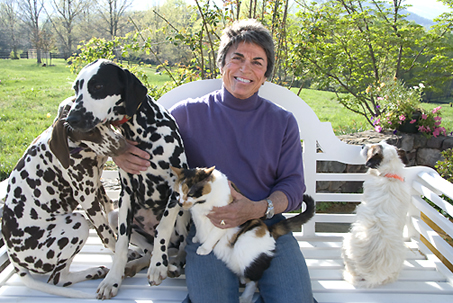
brown with dogs
Rita Mae Brown has not only written about the adventures of the ambitious lady-loving Molly in Ruby Fruit Jungle. She also penned a lesser-known book, Animal Magnetism, in which she pays homage to the animals who’ve made her who she is, dogs included. She has this to say about her first dog, Chaps:
Chaps loved me, even when I was distant and just walking down a dirt road, oblivious to his overtures. He loved me when I was mean, which wasn’t often. He didn’t require that I be beautiful (good thing), smart, witty, or a fascinating conversationalist. He loved me and I loved him.
Later in her chapter on Chaps, she writes, “Chaps, while he taught me to communicate with dogs, taught me most about love. I can’t live without the love of dogs. I don’t know how anyone can.”
+
2. Mary Oliver
When it comes to poet Mary Oliver, I have so many feelings. Whenever I doubt myself, I re-read and re-read and re-read her poem Wild Geese. I’ve probably read it a gazillion-million times, and I don’t even know if a gazillion-million is a real number.
You do not have to be good.
You do not have to walk on your knees
For a hundred miles, through the desert, repenting.
You only have to let the soft animal of your body
Love what it loves
Tell me about your despair, yours, and I’ll tell you mine.
Meanwhile the world goes on.
Meanwhile the sun and the clear pebbles of the rain
are moving across the landscapes,
over the prairies and the deep trees,
the mountains and the rivers.
Meanwhile the wild geese, high in the clean blue air,
are heading home again.
Whoever you are, no matter how lonely,
the world offers itself up to your imagination,
calls to you like the wild geese, harsh and exciting —
over and over announcing your place
In the family of things.
You guys. I know this is an article about dogs, but I had to include this poem about wild geese, just because it’s about so much more than geese, you know.
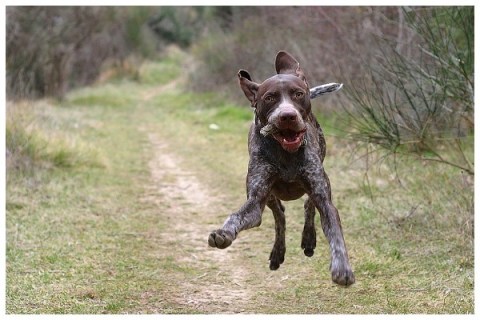
percy
But Mary Oliver has not ignored dogs in her work. Her poem Percy speaks for itself about the importance of dogs to the whole wide world:
Percy
Our new dog, named for the beloved poet,
ate a book which unfortunately we had
left unguarded.
Fortunately, it was the Bhagavad Gita,
of which many copies are available.
Every day now, as Percy grows
into the beauty of his life, we touch
his wild, curly head and say,
“Oh, wisest of little dogs.I have a little dog who likes to nap with me.
He climbs on my body and puts his face in my neck.
He is sweeter than soap.
He is more wonderful than a diamond necklace,
which can’t even bark.
I would like to take him to Kashmir and the Ukraine,
and Jerusalem and Palestine and Iraq and Darfur,
that the sorrowing thousands might see his laughing mouth.
I would like to take him to Washington, right into
the oval office
where Donald Rumsfeld would crawl out of the president’s
armpit
and kneel down on the carpet, and romp like a boy.
+
3. Eileen Myles
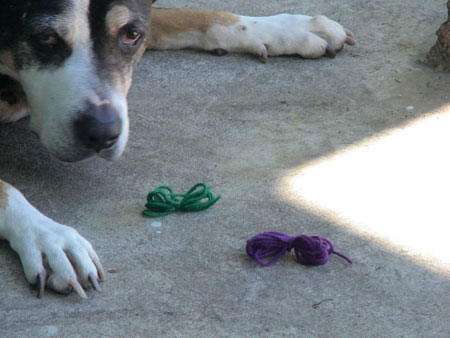
Riese wrote about her here . And then there are articles about her here and here. If you haven’t already noticed, we here at Autostraddle love Eileen Myles. I loved her even more when I found that there’s an entire section of her website devoted to her writings on animals. Here she is writing about caring for her late dog Rosie:
I begin our ritual. Washing her ass first. With a small silver bowl and warm water and special dog medicated shampoo so her belly and legs and ass won’t get red and sore. I rinse her next, pat her ass dry, settle her down onto a clean mat. I do this again and again. Dog, water, soap, mat, mop, bucket. Dog craft is as close as I get in my life to devotion. Which is made of love.
+
4.Virginia Woolf
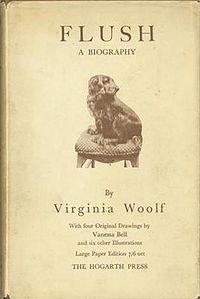
Woolf was involved in a love triangle. No, I’m not talking about the one she was in with her lover Vita Sack-ville West, and both of their husbands. Besides, that’s more of a love square if we’re going to be specific. I’m talking about the love triangle between her, poet Elizabeth Barrett Browning, and Browning’s dog, Flush. Browning described herself as a “philo-dogist,” and believed Flush was remarkably intelligent and well on his way to literacy. It was claimed that the cocker-spaniel could recognise the letters A and B and had the brain power to eventually master the entire alphabet. He didn’t, but that didn’t stop Woolf from penning “Flush: A Biography” after Browning had already written a poetic eulogy in the dog’s honour, “To Flush: My Dog.”
+
5. Tinkerbell (and Riese)
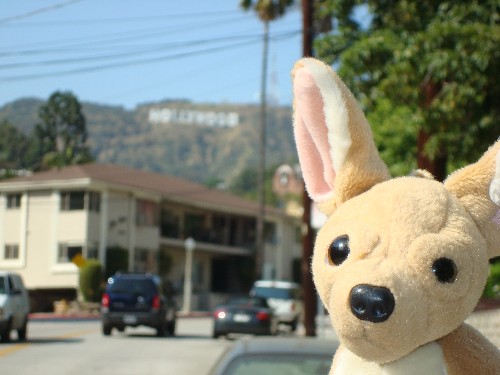
But we can’t talk about highly-intelligent queer-tastic canines without honouring Tinkerbell. Unlike Flush, Tinkerbell is actually literate. Tinkerbell’s command of language goes far beyond the letters A and B. She has proven her wit in many an Autostraddle article. Also this genius is, in fact, trisexual. Riese would like you to know that Tinkerbell was born in Miami, is thin and beautiful, clingy and needy, and might be an alcoholic. Being a queer-tastic literary canine genius with a multi-faceted personality can drive one to alcoholism, you see. There are so many dimensions to Tinkerbell it’s hard to do her justice with this brief description. But hopefully, if you guys raise enough money, a tattoo artist will do her justice on Alex’s behind.
Eileen Myles’ Perfect Tote Bag Exists and You Can Have It
Buried deep within all the weirdness and perfection and magic of Eileen Myles’ Inferno is a line in which Myles casually mentions her fantasy totebag: “The bag I wanted was beyond reason — something to hold my poems, twice as big as the universe and it must be androgynous.” That does sound perfect! Too bad for all of us that it doesn’t exist. OR DOES IT??!
In a moment of inspiration, OR Books, who published Inferno, decided that fantasy could be a reality. According to Fernanda Diaz, OR’s publicity manager, “After a brilliant find by our production manager, Courtney, of a line in Inferno about Eileen’s perfect tote bag, we decided to actually make it, and include the line on the bag.” It is everything we might dream for it to be.
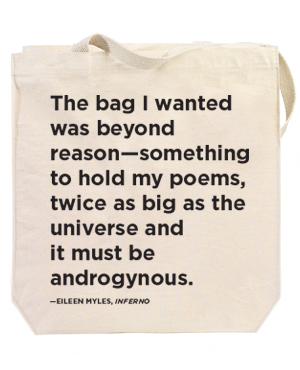
Aside from broadcasting a love of both practical carry-alls and Eileen Myles, this bag seems like it would be excellent for carrying more Eileen Myles books, sandwiches, umbrellas, knitting, secret lockpicking kits, maps to hidden treasure, your wallet, a dummy wallet in case you get mugged, slugs to sell in the subway, your laptop, your poetry notebooks, oranges or other citrus fruit, Triscuits, a pack of cards, chewing gum, ibuprofen, your diary, a hairbrush, and possibly a bunny or small dog if it’s very well-behaved. It’s twice as big as the universe; you can put pretty much anything you want in it.
The bags are available now at OR’s online store, and also made of 100% recycled cotton. (Also, they sell books there. So, you know, if that’s something you’re into.)
Eileen Myles is Coming to DC, Will Most Likely Be Best Thing To Happen Here All Year
Carmen’s Team Pick:
On Wednesday, March 28, Eileen Myles is coming to American University in Washington, DC, and nothing in my life will ever be the same. Will you please come along?

Wave Books contacted me about reviewing Eileen’s new book Snowflake/different streets in November, and me being the complete and total unabashed fangirl that I have always been, I followed up with a “yes” and a “can I maybe arrange for Eileen to speak on my campus?” Days later I got an email from Eileen Myles called “Hi Carmen.” She said yes.
Myles will be hosted by Women’s Initiative at American University, the most badass feminist group on a campus ever and the designers of the best free v-necks of all time. (The event is also cosponsored by the campus queers and so on.) She’ll be reading from Snowflake/different streets and, really, whatever other books she might want to read from, since she knows best. The event will start at 6:30 PM, is completely free, and is going to be outside in the Amphitheater, meaning it will go something like “I went to this poetry reading and laid in the grass.” The event is part of Women’s History Month, and Myles will take questions from the audience following her presentation.
You can RSVP on Facebook to get reminded about the event constantly, but most importantly you should just make sure you show up. Plus the posters are so good:
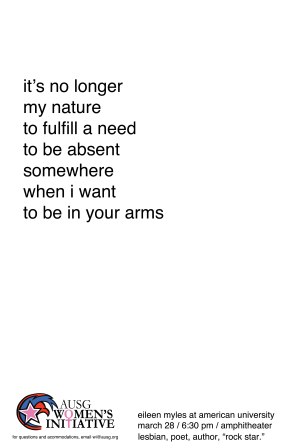
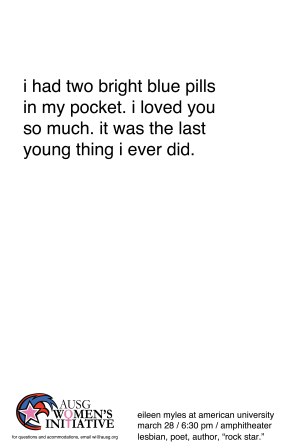
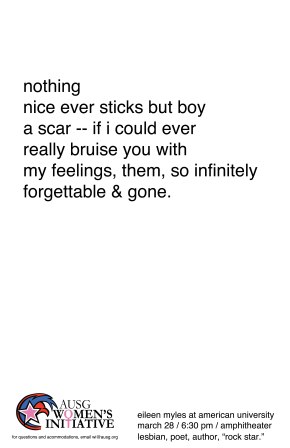
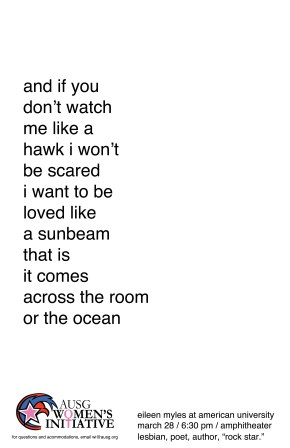
Eileen Myles Still Has It: The Autostraddle Review of “Snowflake / different streets”
There comes a time in every girl’s life when she needs to learn something the hard way. She packs up her bag and she runs away, when she gets back, it happens: the thing that suddenly makes the loneliness a little less palpable and everything a little less grey. Something good comes. Or, in my case, two good things. It was a brown envelope from Wave Books and inside was Eileen Myles’ name – twice. There were two little books, stuck together forever in the poet’s new tandem book Snowflake / different streets. Two books wearing the same little white sweater. I breathed in. Eileen Myles still has it. Eileen Myles will always have it. It was February 2012 then. I felt more certain then than ever that I was going to be okay.


Myles brings forth her first collection of poetry since 2007 in Snowflake / different streets, divided neatly between the “new” and “newer” pieces. (Which is so very Eileen that it makes you smile.) The book will be available come April in its softcover edition as well as a digital edition.
I had to wait a month to really sit down and read the tandem book – I’d picked at it piece by piece throughout February, but until Spring Break I kept thinking, “what are the themes?” and I’d just end up starting all over at square one again on buses and trains. Then the day came where I read it, cover to flipside cover, in order and in a couple of hours with only one break in between. Suddenly I saw every theme, every line, and understood every word. Suddenly it all became very clear to me what made the two books different, what brought them together, and what let them stand alone. And suddenly I was crying.
Snowflake
Snowflake is dedicated to Jean Larkin.
I started off this half of the collection wondering what exactly Myles meant by “snowflake.” What does that word even stand for? In poetry everything stands for something, right? What unfolds in the over 100 pages of poems are stories of these singular moments in time, a series of singular moments. Within the volume exist these irreplaceable, completely unique, one hundred percent-without-chance-of ever-being-duplicated pieces of a life.
I’m not even a boat / I’m where a boat / crashed. / I put my impossible / body in your hands / is this a pen
– “Computer”
Myles is on a journey in Snowflake. She is saying goodbye and also hello a lot – she goes “home,” she travels from San Diego to Los Angeles, she steals pens in New York City, and she loses people and animals she loves along the way. But she is absolutely going somewhere. The poems all form, in the end, this long voyage towards something you don’t know about yet, but she does. Reading it is like the feeling that you are on the road to your manifest destiny but you have no idea what it looks like, just that it exists.
I imagine you / flying around like / ancient art / all gold / don’t be scared / when I call / I’ll be new
– from “Transportation”
It becomes clear, then, that a snowflake is a lot of things. It’s this tiny, unpredictable, unstoppable, one-of-a-kind thing that ends by fading out or lumping together with a bunch of other unique things. It’s a moment that can’t be repeated or replayed, and that you experience once, a million times. A snowflake is a photograph you lose when you move to a new city or an entry in a journal that, no matter how detailed, still lacks the smell and the touch and the feeling of what it was like to live in that person in that time. A snowflake is kind of like a life.
I locked it up / and took the key / and lived / for that moment / snowflake / I wasn’t there
– from “Snowflake”
different streets
The new poems / are poems of / healing. / But first I’ll / be funny.
– Untitled
different streets is dedicated to Leopoldine Core. It’s kind of like that Robert Frost poem: “two roads diverged in a yellow wood,” only in this instance Myles is not the only person walking. Most, if not all, of the poems in this part of the book emanate with passion for this woman Myles loves very deeply, and in them she reconciles their differences.
…You can’t even see / us. Cause we’re everything / else. And it’s ours. And I / love you in the blind spot / our changing ages.
-from “glowing stick”
Myles is distant in age from Core, and in different streets she explores how those differences affect not only her life, but theirs, and the lives they’re living parallel while they lay so connected. But there’s also a disconnect with age that isn’t about your younger lady, but more about your younger you, and the vast sea of time that separates a 59-year-old woman from who she was when she was in her 20s, or 30s. In the end what triumphs is love: the kind of love you feel for someone so deep it connects islands years apart, and the kind for your own self and your own soul.
you’ve made me monstrous / and I love it / I knew a man / who laughed at himself / for being this way / stinking of love
– from “hi”
different streets is the firsthand account of how “two roads in a yellow wood” might become one – if they so choose. It’s a story about two very different lives becoming one beautiful thing, and how even then the paths must diverge. A street doesn’t always have a turn outlet, or directions and lights, or markers, or signs. Kind of like a life.
Eileen Myles Still Has It
What shines through in Snowflake / different streets is the singularity of a life. The incredible isolation and loneliness of having only your own life to live and nobody else to understand exactly what that’s like (since they are so busy living their own), but also the rare and wonder-filled kind of companionship that reminds you that there can always be something we all understand. There are no two snowflakes that look or fall or taste or feel the same, and what Myles recognizes is that neither are two roads – even when they lead to the same place. Somehow the smallest snowflake will survive and make its way to the ground to stick, and every road, no matter how often travelled, will still stand marked.
Kind of like a life.
the world is flooded with you. / That / good.
– from “Girlfriend”

